宋 以 朗 ( 若 果 唔 知 佢 係 邊 位 則 閣 下 good fighter Ltd 矣 ) 作 之 民 調 顯 示 , 香 港 人 覺 得 最 應 該 保 留 之 建 築 物 係 中 環 舊 郵 政 總 局 ( 佢 訪 問
兩 個 人 , 其 中 一 人 冇 意 見 ) 。 舊 郵 政 總 局 寶 貴 又 豈 止 其 饒 有 風 味 之 維 多 利 亞 式 建 築 而 已 , 其 座 落 之 處 更 係 成 個 香 港 核 心 之 所 在 也 。 此 話 怎 說 ?
At issue is the opening phrase which is translated as:
Song Yi-lang (if you don't know who that is, then you must be 'good fighter Ltd') ...
What is 'good fighter Ltd'? This is a literal translation of '
好打有限'. This is wordplay that is possible only in a bilingual city.
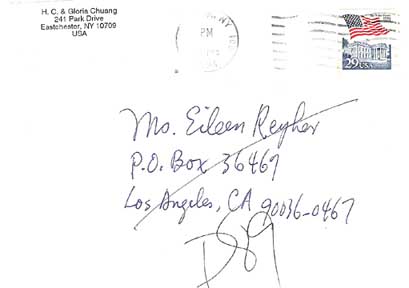

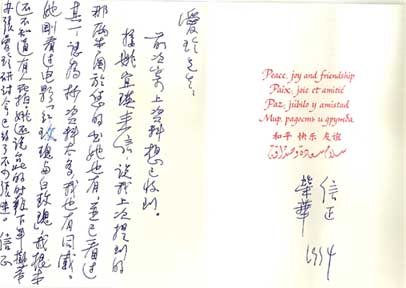
周芬伶) recently published a new book titled <The Sorrow and Pain of Eileen Chang -- A Critical Review of Eileen Chang>. This book used text and photographs to show the various possessions of Eileen Chang, from wigs, brand-name cosmetic products to fashion wear, shoes and valuable handwritten manuscripts. Everything is there. Chou Feng-ling called for the establishment of an Eileen Chang Museum so that more Eileen Chang fans can view her valuable possessions. Shockingly, the fashionable Eileen Chang shaved herself bald in her final years.[in translation]
Tunghai University associate professor and Eileen Chang expert Chou Feng-ling (
<The Sorrow and Pain of Eileen Chang -- A Critical Review of Eileen Chang> used many photographs to show various possessions that have never been shown in mainland China. The reporters was surprised to find that there were several wigs of different sizes and shapes among her possessions. Yesterday, Professor Chou Feng-ling told the reporter that Eileen Chang suffered from a dermatological disease in her final years and was forced to shave her head bald. "She loved to look pretty, so she would never let anyone see her bald-headed. Therefore, she bought many wigs to wear." In 1994, Eileen Chang received a lifetime achievement award from China Times and she sent her last photograph to the newspapers in which she wore a green sweater with white patterns. "Actually, Eileen Chang was wearing a wig at the time. She was already bald-headed." Life is a beautiful gown on which fleas are crawling." This was a famous saying from Eileen Chang, but Chou Feng-ling told the reporter that her research showed that Eileen Chang suffered from a psychological dread of fleas. Whenever she gets anxious, she felt that the room was full of fleas. Her dermatological and psychological problems distressed her a great deal.
Apart from the wigs, the book also showed the various clothes that Eileen Chang had worn ... The book also showed the various cosmetic items that she used ...

Among the photographs of the handwritten manuscripts, many of them are written on the back of envelops: "Eileen Chang would just pick up an envelop and start writing on the back and front. When everything is covered up, she would write on the next envelop."
During the interview, Chou Feng-ling told the reporter that after Eileen Chang passed away, her possessions were all given to her good friends Stephen and Mae Soong. These possessions were transported from the United States eventually to Taiwan. Crown Press had held a small-scale exhibition after which these possessions have not appeared again. "Actually, these possessions have great value for academic research, especially those handwritten manuscripts because it is possible to directly observe the inner progress of Eileen Chang." Chou Feng-ling said not without some regret that the outside world does not know where these valuable possessions are being kept. "It could be with Mae Soong, or it could be with Crown Press."
Chou Feng-ling said that she hopes that there could be an Eileen Chang Museum at which the possessions of Eileen Chang can be systematically and scientifically be displayed in order to satisfy the mass of Eileen Chang fans. The location could be in Taiwan or Hong Kong. But it would also be great if it is in her hometown of Shanghai. Chou Feng-ling is making a call through this report for everybody to support the establishment of such an Eileen Chang Museum. Shanghai Huadong Normal University professor and Eileen Chang expert Chen Zishan said that mainland scholars support this proposal from Chou Feng-ling. "If the possessions of Eileen Chang can come to mainland China, it will definitely be a good thing for mainland fans of Eileen Chang."
Related Link: Eileen Chang's Photograph With Kim Il-sung
[in translation]
The Tuen Mun District Council Poverty Relief Group asked Lingnan University to study the unemployment situation in Tuen Mun and learned that the principal reasons are low education level and lack of technical skills. According to the report, Lingnan University professor Ho Lok-sang recommends that the government impose a minimum wage at a 'reasonable level' such as 'HK$6,000 per month' which 'will not necessarily impact the employment rate.' This was enough to shock this writer.
Is Professor Ho aware that the Hong Kong Law Society set the minimum wage of interns at HK$6,000? Barristers defend justice for the public and they believe that the salary of university law school graduates could be as low as HK$6,000. So how come it is "reasonable" for workers who "have low education level and lack technical levels" to have a minimum wage of HK$6,000as well?
I am opposed to minimum wage because of this kind of anti-intellectual logic. If the minimum wage is to realize the dignity for those with no education and technical skills, then it is also trampling upon the dignity of those who possess the education and technical skills. If a middle-age woman comes from northwestern China not knowing Cantonese and having no education and skills can earn HK$6,000 per month in Hong Kong, then why would the grassroots parents living in public housing estates ever want their children to study hard? Their children will surely protest: What is the point of studying? After studying law for three years, we are still earning less than HK$10,000 per month; if we get an associate degree, we may earn HK$7,500 while the government expects us to pay 8% interest on the HK$100,000+ loan that we took out and which we may never be able to repay. So why not just finish Form Five, drop out and get a job as a telecommunication company salesman?
But even if there is a minimum wage, certain grassroots organizations will not be satisfied. The Catholic Labor Affairs Committee is holding a "family wages" campaign which said that the reasonable wage level should be at least equal to the "family wage" that can meet the basic needs of the entire family. Thus, the employer will have to pay a married employee twice the salary of a single employee! If a Hong Kong person is smart, he should not bother with working overtime to make more money; instead, he should be working hard with his wife every night to pro-create -- if he has eight children, then this family of ten will be earning HK$60,000 per month! There is even a "Civil Alliance To Fight For A Minimum Wage" that calls on citizens to complain about any job that pays less than HK$30 per hour. I was brought up to think that I earn for the amount of work that I do, and I cannot understand why the way to obtain higher wages is to protest in the streets as opposed to working harder! If there should be a minimum wage, then the workers will only work harder to protest more to raise the minimum wage level instead of working harder and improving their skills and knowledge.
In retrospect, it is a waste of social resources to set up a minimum wage out of "pity" for those without the education and technical skills. In the early 1980's many young women were still working in the garment manufacturing industry. As the factories began to relocate to China, the demand for such laborers decreased. First, they lost the overtime work; then they had difficulty finding any employment. The parents and teachers recognized that the garment industry was a sunset industry and they told the next generation to stay in school to acquire better education and skills. It was a gradual process back then. But if they had imposed a minimum wage at the time, more young people would have continued to enter the factories because the wages were still attractive. But the wages would result in higher costs, and this would only accelerate the relocation of the factories to mainland China. In the end, many workers would have been sorry to have joined this industry because there were no more jobs. This is the same problem with the bar benders, because more and more construction projects are using pre-fabricated units made in China for the cost reasons. Even if the housing market recovers, the demand for bar benders is not going to increase. The minimum wage can guarantee only the minimum wage, but it cannot guarantee that the workers will find work!
The government can provide welfare such as subsidies for those with low income in order to assist those without technical skills. These workers can survive and they will also recognize that they need the education and skills if they want to improve their lot. A minimum wage will disrupt the system that allocates social resources. The road to hell is paved with good intentions. The minimum wage represents a slow death by poisoning; it will only numb the grassroots workers and their next generation.
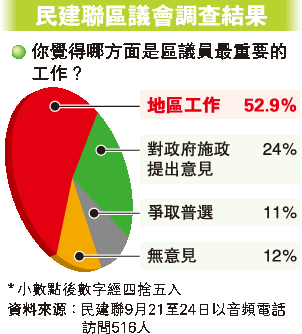
Q1. Are you paying attention to the pan-democratic forum to select a candidate in the Legco by-election?
39%: Yes
52%: No
9%: No opinion
Q2. Anson Chan participated in this pan-democratic forum. Do you think that she is representing the pan-democrats or her own self in this Legco by-election?
52%: Pan-democrats
38%: Herself
10%: No opinion
Q3. Are you satisfied with the pan-democrats' selection mechanism for a candidate?
27%: Satisfied
38%: Dissatisfied
35%: No opinion
Q4. Will Anson Chan be able to set up a communication platform between the central government and the pan-democrats?
38%: Yes
56%: No
6%: No opinion
Q5. Will the participation of Anson Chan in this Legco by-election cause her relationship with the central government to ...
27%: become better
42%: become worse
16%: stay the same
15%: no opinion
Q6. Will the participation of Anson in this Legco by-election cause the actual pace towards double universal suffrage to ...
26%: go quicker
31%: go slower
32%: be unchanged
11%: no opinion
Q7. Will the participation of Anson in this Legco by-election cause Hong Kong society to become ...
29%: more unified
35%: more divided
36%: no opinion
[in translation]
... Frankly speaking, neither person performed well. After the debate, Ma Ngok rated Anson Chan as being incapable of shedding her Chief Secretary style and he was being kind. Anson Chan kept emphasizing the need to communicate with the central government and her specific policies were identical to the recommendations from Donald Tsang: the minimum wage law depends on the results of the campaign to guarantee wages; for environmental protection, she proposed to require that waiting vehicles must have the ignition turned off; she agreed that public servants deserve wage raises ... what is the difference between her and Bowtie Tsang?
She spoke about the Legislative Council vote on July 4th, and said that June 4th will be vindicated someday. But there was just no way that she could bring herself to say whether she would vote to vindicate June 4th if she were elected to the Legislative Council. No wonder that a Democratic Party member laughed and said: "It was fortunate that Mrs. Chan said that. If this was one of my party members, Uncle Szeto Wah would have disciplined her." When the highly esteemed Professor Kwan once said that Hong Kong must dropped the baggage of June 4th in order to fight for democracy, there was a huge storm. The Civic Party had to come out to explain on behalf of Professor Kwan. At that year's June 4th candlelight virgil, Professor Kwan had to arrive early to show that he has not wavered in his position that June 4th must be vindicated. For the people of Hong Kong, June 4th meant a lot more than July 1st. Perhaps Mrs. Chan has been a government official too long and she has been waffling through these sensitive subjects. But if she is coming out to stand for election, the hardcore democrats are not going to let her waffle her way through these major issues!
As for how Anson Chan was repeatedly attacked by Dr. Lo's sarcastic barbs, a pan-democrat said that Mrs. Chan has already exceeded expectations by finishing what she wanted to say within the time limit and without falling apart. It was not easy to ask a 60-something-old lady and a senior official who has never faced questions from the public to finish such an election forum.
As for Dr. Lo, his relentless hounding tactics sent Anson Chan into disarray. But he made the same mistake that Alan Leong did in his second Chief Executive debate in that he did not know how to hold back. During the second half of this debate, he went over the top. According to a labor union person, he thought that Dr. Lo was winning at first when he went after Anson Chan. But when Dr. Lo began to talk about how he was sorry about being a Legco member in the functional constituency, how he wanted to start anew, how hard it was to fight for democracy, how many years Aung San Suu Kyi was imprisoned and so on, this person felt that it was "very fake" and "very opportunitistic." Unless you have taken the path of democracy and underwent those experiences, you should not say those things. When Szeto Wah or "Long Hair" Leung Kwok-hung say it, it sounds stirring and tragic; when Dr. Lo says it, sorry, it is imitative and only sounds fake.
No matter what, there is only a long shot for Anson Chan not to win in the pan-democrats' selection process. The remaining quesiton is whether Anson Chan's performance tonight is good enough to beat Regina Ip? If she offered tonight's policy platform again, Regina Ip will surely ridicule her: "Why did you bring Donald Tsang's policy platform here tonight?" In terms of debate techniques, as long as Regina Ip does not get too aggressive, she is bound to be better than Anson Chan because she had the experience of debating the pan-democrats on her own over Article 23. When the two ladies face off each other next time, Anson Chan will find it even more difficult. No wonder that even as the pan-democrats kept praising Anson Chan tonight, they also slipped and said that they need to meet quickly to review the performance in this debate.
In October 2006, Li Jun began to work on the computer virus "Joss-stick burning panda" and asked Lei Lei for advice. Lei Lei thought that the virus was modifying the icon of the infected documents without disguising itself and it was therefore easy to detect. Therefore he recommended Li Jun to work on disguising the virus.
In early December 2006, Li Jun began to sell the virus on the Internet. He asked Wang Lei and other netizen friends to assist him. When the "Joss-stick burning panda" virus began to propagate quickly on the Internet, netizens found themselves auomatically connected to Li Jun's personal website (www.krvkr.com). When Wang Lei learned of the huge traffic volume at the website, he proposed a 50%/50% deal with Li Jun to profit from advertising.
Meanwhile Zhang Shun purchased the access from Li Jun's traffic and posted nine pieces of "trojan horse" malware on the server to steal the " online game folder" on the computers of the visitors. Then Zhang Shun sold the information for profit.
In February 2007, Li Jun, Wang Lei, Zhang Shun and Lei Lei were arrested by the public security bureau. Wang Lei and Zhang Shun gave back their loot while Li Jun turned over his ill-gotten gains as well as the tools to clean out the "Joss-stick burning panda" virus. On September 24, 2007, the court sentenced Li Jun, Wang Lei, Zhang Shun and Lei Lei to 4 years, 2 years 6 months, 2 years and one year in prison respectively. The sentence is considered lenient in view of their cooperation.
- Television News in Taiwan
- The Taiwan That You May Not Know About
- Lung Ying-tai on Eileen Chang
- A Chairman Bowed Formally Three Times
- Styles of Radical Will: Hong Kong vs. Taiwan
- Please Use Civilization To Convince Us
- The Window To The Chinese-language World
- Hong Kong Cultural Sovereignty: Whose Tamar Is It?
- Today's Lesson: Character
- How I am Learning the Lesson of "Chen Shui-bian"
- Lung Ying-Tai Confesses To Her Crime
- Translated Excerpts from Lung Ying-tai's Melbourne Speech
- If You Want Peace, You Must Not Keep Hurting Taiwan
- The <Far and Wide Weekly> Interview of Lung Ying-tai
- Lung Ying-tai on <Lust, Caution>
Notwithstanding your belief, I have never met her in person or even corresponded with her in any manner or fashion all this time. That was until the Hong Kong premiere of Ang Lee's film <Lust, Caution>. While it is for certain that I knew who she was, it was news that she knew who I was (namely, the person who does these unauthorized translations of her essays!). I don't like personal photos on this website, but this is one for memories -- from right to left: Lung Ying-tai, Rebecca MacKinnon and moi, with champagne glasses in hand (courtesy of Salvatore Ferragamo). May this be a toast to a long friendship ...
For the League of Socialist Democrats who stand up for the grassroots and vulnerable social groups, this was an important evening. The performance of their vice-chairman Lo Wing-lok exceeded expectations. He may be a petit bourgeois, but he was able to express the ideas of socialist democracy fully. Whether it was truthful or not, or whether it was pleasing or not, when have the ideas of socialism been so thoroughly articulated?
If Lo Wing-lok's performance was somewhat over-the-top, the officious tone of old Mrs. Chan was even more disappointing. When the former administrative officials Regina Ip and old Mrs. Chan talk their unbearable officialese, we will prefer to remember this forum on the first night of the campaign ...
First half:
Mrs. Chan had gone into retirement for a while. From her preliminary performance tonight, the "training" given to her by the pan-democrats is not very effective. She was tongue-tied many ties, and her responses on key questions were off the point. The questions from the professors were clearly premised upon the "pan-democratic" viewpoint, but her responses could hardly move the pan-democrats; in fact, they would be counter-productive with respect to the middle-of-the-road voters.
Of course, Lo Wing-lok continued with the League of Social Democrats' style by evading the issue. But since Mrs. Chan was clearly unprepared, Lo Wing-lok's bravado achieved the strategic objectives.
Mrs. Chan's preparation tonight was disappointing. Tonight's outcome was the worst thing possible. The strategy of the pan-democrats consists of one mistake after another. This was hurting Mrs. Chan, this ruined the whole political show and it benefited Regina Ip. This was extremely disappointing.
Second half:
The questions from the audience forced Lo Wing-lok to deal with the "suddenly long-hair" issue. But the questioners lacked debating skills, and so Lo Wing-lok continued with his "what is right today was wrong yesterday" logic and completely evaded the issues.
Mrs. Chan did not improve on her performance. But Lo Wing-lok made some mistakes, so the situation got better for her.
Conclusion:
The first mistake of the pan-democrats was to insist on holding this forum. Their preparation was totally inadequate compared to that of the League of Socialist Democrats, and they were defeated by Lo Wing-lok. On the various policies, they repeated showed the wrong policy goals which will only help Regina Ip to win over the middle-of-the-road voters. In terms of the political parties, the League of Social Democrats were able to elevate the status of Lo Wing-lok. If the Democratic Party and the Civic Party insist on holding this forum, then why won't they send their second-tier teams out? In terms of political moves, the mainstream pan-democrats have made one mistake after another. They may strike out and lose everything.
If they can't even beat Lo Wing-lok, how can they beat Regina Ip? If Mrs. Chan's election campaign team does not get a new set of people, the situation is worrisome indeed.
Q1. Three different newspapers had the same photograph of a nude female soldier, but the Obscene Articles Tribune came up with different classifications. What do you think?
39%: The classification is not systematic and reflects individual subjective judgments
23%: There are no standards for classifying.
14%: There are frequent problems that become scandals and jokes
10%: There is nothing wrong with the classification system and this is just an isolated case
14%: No opinion
Q2. Many newspapers published the same sexy photograph of a British model. The Obscene Articles Tribune made different classifications and the Television and Entertainment Licensing Authority prosecuted some newspapers but not others. Why?
41%: The departments' classification processes are chaotic
21%: The departments are making selective prosecutions
18%: The departments are sloppy in their work, and they committed mistakes
11%: This is just an isolated case
10%: No opinion
The prelude to the Hong Kong Legislative Council By-election war between the two ladies will commence tonight with a debate between former Chief Secretary Anson Chan and League of Socialist Democrats vice-chairman Lo Wing-lok. Meanwhile, former Secretary for Security Regina Ip is getting to ready to announce her own candidacy on Thursday. Most citizens are looking forward to watch a "good show." But the Donald Tsang administration takes a different view, because this contest has more drawbacks than benefits for them. They even comment sarcastically that these are "political spiritual blessing gangs" deceiving the citizens who yearn for universal election.
The democrats who persuaded Mrs. Chan to enter the election has emphasized repeatedly that supporting Mrs. Chan in the by-election equates showing to the Hong Kong SAR government and the central government the desire of the people of Hong Kong for universal suffrage in 2012. This is a great opportunity for Hong Kong citizens to show their desire for democracy.
But some members of Donald Tsang's team are pessimistic. A senior official who had worked with both women said that there will be an ugly war over the next two months. The reason why it will be ugly is that the two are too familiar with the workings of the government as well as each other. When they both worked as government officials at Lower Albert Road, they left 'bite marks' on each other. They will be trying their best to win this time, for public as well as personal reasons. If a "crisis" should arise, they may use negative propaganda to attack their opponent. No wonder that the government insider said that using "female mud wresting" to describe this war between the two women will be no exaggeration.
A core member of the Donald Tsang government said privately that Mrs. Chan will surely win in his opinion as an expert, most likely by more than 10% of the votes. A big victory by Mrs. Chan will make it harder for the Donald Tsang government in the future. Specifically, the chances of success in political reforms for universal suffrage will be even more remote.
They tended to believe thatthe democrats who pushed for Anson Chan to compete against Regina Ip are the ones who really do not want to see universal suffrage in Hong Kong. The government believes that certain 'democrats' think that 'the fight for universal suffrage' is the spring of their political lives. If universal suffrage should ever be implemented in Hong Kong, these people will have nothing to fall back upon because they will no longer have any means to attract the voters. As such, they needed Hong Kong to continue to have an antagonistic and confrontational political atmosphere. Therefore, they did their best to put Anson Chan whom Beijing trusts least to run against Regina Ip whom Beijing trusts very much. They also decided to elevate this Hong Kong Legislative Council by-election to a major choice between democracy and undemocracy.
This Donald Tsang government insider said with despondency: over the next year, Mrs. Chan may assume the role as the "new goddess of democracy" to lead the movement for universal suffrage and increase the level of antagonistic politics in Hong Kong. The party lines will be clearly demarcated. In their views, there is no chance that Beijing would let Hong Kong have universal suffrage under these circumstances. Donald Tsang is therefore wasting his time with the Green Paper and any associated consultations. This person smiled and said: "Universal suffrage in 2012? You better kiss it goodbye!"
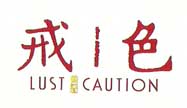
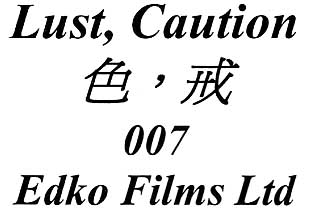
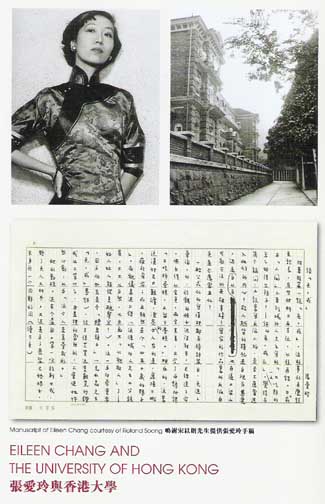
You can read the the whole thing yourself.
I read Q1 ("How familiar are you with country of Taiwan?") and found these results:
6%: Very familiar
33%: Somewhat familiar
27%: Not very familiar
34%: Not at all familiar
1%: Not sure
Then I found it impossible to reconcile this with many of the results that followed this question.
For example, the two key questions that are getting played up by the Taiwan Government Information Office (see, for example, Liberty Times) are:
Q14. At present, Taiwan is not a member of the United Nations. Taiwan should be offered membership in the U.N.
24%: Strongly agree
31%: Somewhat agree
18%: Somewhat disagree
9%: Strongly disagree
18%: Not sure
Q15. If the people of Taiwan pass a referendum to join the U.N., then the United States should not oppose Taiwan's petition for membership for the U.N.
33%: Strongly agree
37%: Somewhat agree
11%: Somewhat disagree
6%: Strongly disagree
13%: Not sure
From Q1, 39% of the people are very/somewhat familiar with Taiwan but 61% are very/somewhat unfamiliar with Taiwan. Nevertheless, 82% and 87% of these people are willing to offer their opinions on Q14 and Q15. Those who offered answers but previously stated that they were unfamiliar with Taiwan had only the lead-in paragraphs to go by. Can those issues be reduced so simply?
Thus, suppose someone just told you that she is not familiar with Taiwan. She probably cannot locate it anywhere on a map. After all, she comes from a country in which 20% of the people think the United Kingdom is in the Middle East, or that Canada is one of the states inside the United States of America. But you ask anyway: "At present, Taiwan is not a member of the United Nations. Taiwan should be offered membership in the U.N." Are you sure that you want her ill-informed answer? What good will that do for you? You will probably get comparable levels of response from Americans if Taiwan was replaced by Chechnya, Macedonia, Scotland or Tasmania in the question.
Why does the Taiwan Government Information Office want to commission and publish this kind of stuff? They want to create the impression that the majority of American citizens support Taiwan for U.N. membership. And since the United States of America is the home of democracy and freedom, the will of their people will be respected and followed by their democratic government. Why else are American soldiers dying in Iraq if not to obey the will of their people (of which only about 60% want withdrawal from Iraq)? But the second that you explain to these American citizens that this might lead to nuclear war with China, where do you think the suppport levels will go? "Oh, but you didn't tell me that ...?"
Addendedum: Comment 200709#067 in which the United States of America turned out to be an armed camp filled with trained killers ...
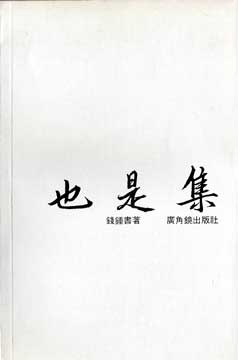
How did Ma Lik know my father? My father never told me about Ma Lik, but I will leave three conjectures (without offering any evidence):
(1) Both my father and Ma Lik are specialists in the Chinese classical novel <Dream of the Red Chamber>. Thus, they must have minimally read each other's works.
(2) It is well known that my father had a tutor-friend relationship with Qian Zhongshu in Shanghai, and therefore Ma Lik sent a complimentary copy of the book to my father.
(3) My father's belief as stated to me was that he and his friend Eileen Chang were major targets for China's Department of Unification. Any statement from my father or Eileen Chang in support of the People's Republic of China would have tremendous propaganda value given their previous positions as stalwart anti-Communists.
Xie Tao said that the Chinese problem can be described by three words: haste, wait, push. One cannot be hasty; but one cannot wait either; so one has to push forward. The Communist Party is heading in the right direction towards constitutional democracy in small steps. It is impossible to take big steps, and those slow steps will result in many small steps that turn out to be big changes twenty or thirty years later.
"Old people like us will not be able to witness those big changes twenty or thirty years later. We will be dead by then. Those people who are in their 30's now will have gone through two decades of struggling. They are not bounded to the old system and they will have their new ideas. By the Twentieth Congress of the Chinese Communist Party, there will be big changes. Although we won't be able to see them, we can keep pushing foreword. As long as we are alive, we will say what we have to say. I have weathered many storms over several decades. I joined the Party sixty years ago, and I was one of the earliest teachers of Marxist theory in China. I am in my late years and I do not have many days left in my life. If I do not speak the truth about what I experienced during my lifetime, I ought to be ashamed for myself. Before meeting God, I want to leave behind a few truth words. Such are my feelings now."
... The essay The Democratic Socialist Model and the Future of China> was written in 2006. During discussions with friends, Xie Tao foresaw that there would be a huge impact because of the questions that were raised. Under the long-term censorship, such problems cannot be discussed openly, because it is a very grave issue to negate the thoughts of Mao Zedong, Lenin and Stalin. He had to be extremely careful and so he held the essay back. But somehow someone posted the essay on the Internet and it spread quickly. At the time, he was in Chengdu and quite unaware of what was happening. But a friend at Yanhuang Chunqiu called him up and asked to publish the essay with some minor editing of certain sharp and sensitive language. So he agreed.
"Before publishing the essay, the editors studied the situation and they were prepared to deal with three types of situations. First, the supervisory department would close down the magazine. They were prepared to hire a lawyer and fight it in court. Secondly, this particular issue of the magazine would be banned. This has indeed happened before. Therefore, the editor began distributing the magazine before the scheduled date. Thirdly, the supervisory department would ask the editors to make a self-examination or otherwise apply pressure with suitable methods."
But there was no official response from the supervisory departments for five months until the People's Daily published a response to a reader's inquiry about the essay. The central government communicated the following about this essay: it will not be disseminated; it will not be re-published; it will not be criticized; it will not be argued over with the media. However, individuals are entitled to express their views.
"This was unexpected but also the best possible response that we could have. The essay was viciously attacked by the traditional leftists. There were a dozen criticism meetings during which we were accused of subverting the Communist Party, socialism, the state constitution and the Party constitution. But none of these were reasoned criticisms. They were just Cultural Revolution-style criticisms."
"Over the various historical movements in China, we built our sense of history through our personal experiences. Many people are reflecting on this history, including certain cadre leaders inside the Party. These are the rational thoughts that a normal and healthy person ought to have. I am just one of these people. Over the decades, China nurtured these types of people. When we were young, we sincerely worked for the Revolution and we sincerely tried to defend it. In our last years, after weathering the storms of several decades, we want to say a few truthful words and explore the future through the historical truths."
(Linfen) is listed among the world's ten most polluted places of 2007, according to the New York-based nonprofit Blacksmith Institute. Linfen sits at the center of China's prodigious coal industry, which is largely unregulated by the government. Residents describe choking on coal dust, and local health clinics have reported an upsurge in bronchitis, pneumonia, and lung cancer, according to the institute.
(Ta Kung Pao via Nanyang Siang Pau)
Linfen was listed as at number 3 among the nine most polluted cities in the world according to National Geographic magazine. In the discussion of Linfen's severe pollution problem, National Geographic reported: At 10am, the sun is invisible even though everybody knows that it is overhead; when tourists walk in the street, their clothes are covered with soot; the water is malodorous and brownish black with white foamy bubbles on top; the rate of birth defects leads the world in recent years.
Linfen city mayor Li Tiantai expressed his "strong dissatisfaction and protest" against the report. Shanxi pronvincial environmental protection agency deputy director Wang Jinglong said that Linfen has gotten rid of the label as the worst polluted city in China earlier this year. Year-to-date, the total number of Class II or better days has exceeded the grand total for all of last year. The local government officials said that National Geographic ignored their efforts to improve air quality and they indicated that they wanted to sue National Geographic.
When Linfen mayor Li Tiantai was interviewed, he expressed his "strong dissatisfaction and protest."
This is known as "shooting the messenger."
Early morning yesterday, Mongkok Police District special services squad detectives received a tip and proceeded to stake out an Internet cafe. Twenty-five minutes later, the target male person showed up and went to visit a baccarat-gambling website that was hosted overseas. The detectives rushed up and placed the man under arrest.
The suspect was a regular visitors at this Internet cafe. He visits two to three times a week, spending one to two hours each time. Reportedly, he is a restaurant worker who did not want to use the Internet at home because his family might find out that he was gambling. Therefore, he used an Internet cafe instead. During the action, the police took away one computer, a piece of paper that recorded HKD 80,000 in bets, a piece of paper that recorded the sequence of outcomes and a credit card that was believed to be used for payment.
Under Hong Kong law, anyone who places a bet with an illegal betting organization (whether it is located inside or outside of Hong Kong) is committing a crime. The initial offense can draw a penalty of HKD 10,000 in fines and 3 months in jail; additional offenses can draw a penalty of HKD 20,000 and 6 months in jail.
According to a legal expert, it is hard for the police to gather evidence about illegal Internet gambling. Usually, they have to go undercover and watch the suspect making a bet. Then they have to retrieve the IP address from the Internet cafe's computer. Then they have to ask the Internet servive provider for the pages that the suspect had visited. This legal expert recommends that the government should issue regulations for Internet cafe to stricly record the personal identity information of the users and the times when they were on the Internet. However, he admits that it is difficult to carry out because the users don't want to feel that they are being watched.
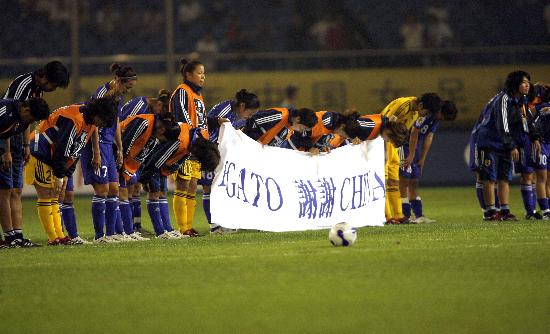
In the hearing over the Starpix agency photographs of Kelly Brook on a Caribbean beach that Oriental Daily/The Sun published and that the Hong Kong Television and Entertainment Authority/Obscene Articles Tribunal found to be Class II: Indecent, witnesses testified that during the same period: (1) the overseas magazine NOW showed the same photographs in which Kelly Brook's breasts were not covered up with pixels as Oriental Daily/The Sun did with their photographs. However, NOW was never rated by TELA/OAT even though it was on sale in Hong Kong; (2) on the same day when Oriental Daily/The Sun published their photographs, a similiar Kelly Brook photograph appeared in Apple Daily. Upon review, TELA/OAT found that to be neither indecent nor obscene.
During the hearing, the TELA lawyer said that just because these other cases were not prosecuted does not mean that they were not illegal. The Oriental Daily/The Sun lawyer said: "In that case, you are saying that there is selective prosecution. This is very serious. I will use the fact that this was a dishonest prosecution and ask for a permanent stop to the hearing." The TELA lawyer said: "Perhaps there was no prosecution due to lack of evidence, or perhaps the case was not detected ... I am just saying that we do not know why these other cases were not found to be indecent. Therefore, the magistrate should not use them as reference." The magistrate showed his concern: "If the classification is based upon commonly accepted moral standards in society, then why shouldn't this case be compared to previous cases classified as indecent? Even if the NOW case should not be used for comparison, but we have the extreme situation that Apple Daily has a similar photograph but was classified as neither indecent nor obscene. When I assess this case, can I make that comparison?"
Perhaps the key here is an article back in March 2006 in Oriental Daily (see link) which quotes the TELA/OAT opinion:
「涉案兩個物品使用顯眼的女性裸體照,配以挑逗性的標題字句,照片的『打格仔』效果僅遮蓋乳尖,乳房的形狀大小及身體曲線清晰可見,標題上使用如『裸你 命』、『裸胸招搖』,在內文字上使用『半裸與男友海灘調情』、『半裸大解放』一類的挑逗字眼,據此認定物品整體上產生顯著的色情效果。」
The two publications involved in the case used an eye-catching photograph of a nude female body accompanied by provocative captions. The pixels only covered the nipple, but the shape of the breasts and the curvature of the body were clearly visible. The captions include "Life-threatening nudity" and "Showing off bare breasts" and the texts refer to "cavorting half-naked with boyfriend on the beach" and "semi-nude liberation" and other provocative terms. Accordingly, it was determined that the article has an obviously pornographic effect overall."
Apparently, the presence of the photographs themselves are not fatal per se -- it is the accompanying captions and text that created the "obviously pornographic effect overall." Oh, wait, but this is completely opposite to the philosophy articulated in the case of Oiwan Lam in which two female nipples were automatically pornographic irrespective of the accompanying context.
Relevant Link: Original unpixellated photographs at The Dark Hat.
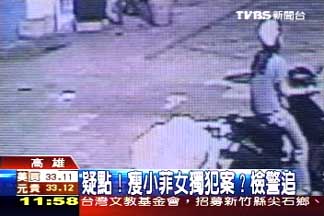

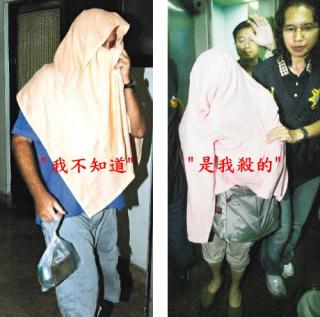
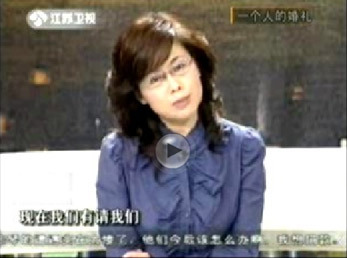
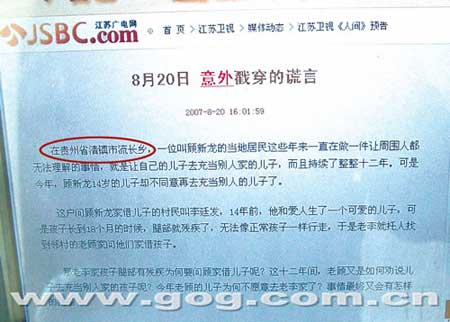
Taiwan independence
83% oppose
11% supportConfidence in cross-strait reunification
54% confident
38% not confidentTaiwan rejoining the United Nations
68% oppose
22% supportBelieved 'one country, two systems" is applicable to Taiwan
51% yes
39% noDeng Xiaoping accrued more merits or faults
82% more merits
3% more faultsZhao Ziyang accrued more merits or faults
59% more merits
3% more faultsYang Shangkun accrued more merits or faults
21% more merits
20% more faults
邱美雲 ), who had been missing since last Tuesday.The Kaohsiung Police Bureau said yesterday that a female Japanese teacher working in Taiwan has been questioned after a woman's body was found in a garbage bag in Kaohsiung City early on Sunday morning. A man found the body inside a large black garbage bag in front of a store in the city's Yencheng District. The man told police the bag had been abandoned on the street a few days ago and that stray dogs had been hanging around the bag ever since. The man told police that he cut a hole in the bag and was surprised to see a human leg. Police on Sunday said the deceased was 48-year-old Chou Mei-yun (
...
Police said footage from a surveillance camera near the place where the body was found showed the Japanese teacher riding a scooter and towing a big black garbage bag. But during questioning the suspect told the police that she had loaned her motorcycle to an American man. Chang said the teacher had had frequent cellphone contact with Chou before she disappeared. Police suspect the deceased might have argued with the Japanese woman about brokerage fees before the incident, Chang said.
Then for something completely different on the same story in Apple Daily, China Times and United Daily News:
There has been a major breakthrough in the case of Chou Mei-yun. The American English-language teacher David Fillon is suspected of having a financial dispute with Chou and murdered her together with his Filipina girlfriend Armia (or Malina). Although David Fillon is a suspect, the American Institute of Taiwan requested the "protection of his human rights" and therefore the police has not declared the case to be solved as yet.
According to the police, the corpse of Chou Mei-yun was discovered at around 8pm on September 15. Upon review of the community surveillance camera videotape, the police observed a female on a motorcycle disposed the bag at around 11pm on September 14. The police used the motorcycle license plate number to locate the Japanese female owner, who said that she had loaned the motorcycle to the American teacher David Fillon.
On the afternoon of September 17, the police obtained a warrant to search the apartment of David Fillon. They learned that Fillon had just moved away, but they found many blood stains as well as dog hair similar to those found inside the bag that contained the corpse.
The police then asked the Japanese woman to call Fillon to ask him and his girlfriend to come in and collect their wages. When they showed up, the police arrested them.
Photograph of David Fillon being questioned by Kaohsiung policeThe newspaper reporters also canvassed the neighborhood for impressions about David Fillon. He is supposed to be consorting with various women, including a steady Filipina woman plus Taiwanese women and even girls that speak Japanese. Usually, Fillon is cold and distant and does not speak to people. He always appears sloppily dressed to be in a bad mood. He drinks a lot, especially Taiwan beer: he says that loves Taiwan and therefore he drinks Taiwan beer. According to the convenience store worker, Fillon usually comes in the morning for breakfast and then a 12-pack of beer at night.
Q1. Would you like to see our country join or re-join the United Nations?
54%: Yes
10%: No
34%: No opinionQ2. Are you aware that President Chen Shui-bian is pushing for a referendum to "join the United Nations under the name of Taiwan"?
77%: Yes
21%: No
2%: No opinionQ3. Do you agree or disagree with a public referendum of "joining the United Nations under the name of Taiwan"?
43%: Yes
31%: No
25%: No opinionQ4. Are you concerned that the referendum to join the United Nations may damage Taiwan-US relationships?
39%: Yes
39%: No
20%: No opinionQ5. Under the circumstance in which the United States is publicly opposing the referendum in Taiwan to join the United Nations, is it necessary for the government to insist on holding the public referendum to join the United Nations?
30%: Yes
42%: No
27%: No opinion
The Hong Kong Democratic Party hired a public relations person to present a new image of itself. The first effort is the placement of advertisement on restaurant paper mats. For the first wave, about 30 restaurants have signed on. Shortly after the campaign began, one restaurant chain store received a customer complaint about loss of appetite as a result of seeing the picture of Democratic Party members. That may or may not be the real reason for the complaint. In any case, that restaurant has withdrawn from the campaign. The advertising agency has found other restaurants to substitute. Apart from this odd affair, it is an open question about the advertising effectiveness of this kind of ad campaign.
疯狂英语:本质是邪教 周黎明
In Baotou, 3000 students kneel down for Li Yang who teaches "Crazy English"English is no doubt the most important knowledge tool at the moment. I cannot say about any other occupation, but if you want to be involved media, then you are short-changing your job if you don't read English-language publications. The reason is that the majority of information and opinions are written in English. With so many people using English in so many places around the world, it is no exaggeration to say that English is the most democratic language. Even if God should try, there is no way to force the English-language world to shut up collectively about a certain matter. This is a blessing to those who seek the truth.
Thanks to the position of English among the languages of the world, England can rely on the Queen's accent to reap huge profits. Many English people are endowed at birth with a skill -- even though many of them have local accents, who is going to be able to tell once they get out to Asia? Therefore, when I asked by a number of middle school students what the most important subject is, I gave them the simple answer that they should try to learn English world. Before they can pass the reading/speaking/listening parts of English before they graduate from high school, they will be welcomed even if they never attend university. Those people who think that the Chinese language is the best in the world should not be angry. You listen to my explanation: no matter how wonderful Chinese is, someone still has to translate all that marvelous stuff into English to benefit the world -- there is money to be made to facilitate communication in different language. So your job prospects will be fantastic.
English is so useful. Furthermore, there are free lunches everywhere. In an age with broadband Internet access, there are innumerable free opportunities to learn English. If you want to learn British style English, you can read The Guardian and Financial Times; if you want to learn American style English, you can listen to NPR and read the New York Times and Washington Post. You will be just like a local in your pronunciation, vocabulary and grammar. After spending the unavoidable several thousand hours, your English will be fluent. You do not have to pay people like Li Yang. He takes your money and you have to kneel down and thank him for his graces. If he thinks that people should kneel and give thanks, then it is him who ought to thank the students who are paying their fees and feeding him. If everybody uses these free methods to learn English, he would starve to death.
Concerning the public kneeling incident, Li Yang is feeling great. He is recently advocating that female university students should cut their hair to show their dedication as his students. But somehow he did not ask the same of male university students. Fortunately, the female university students know that the length of one's hair is not related to the level of mastery of English and they refused. If Li Yang gets with this one, he could be trying to play the "Symphony of Intercourse between Yin and Yang" in order to infuse the spirit of the English language into the bodies of the students.
The English-language cult of Li Yang shows that any language is just a tool. If used well, it can provide excellent information. If used for brain-washing people, it gets people to kneel down and cut their hair. Language-learning entails rationality, self-control, dedication and repeated practice. It is simple and straightforward, but no shortcut. You should not hope for any genius who can enable you to advance in a flash. To kneel down to an unknown crazy orator is sheer ignorance which is detrimental to improving your learning skills and rational thinking. You must stay away from these kinds of so-called "teachers." You learn English for the joy of more knowledge and thinking. We are already unmatched in the art of kneeling, and we don't need to learn English in order to master it.
In order to save Li Yang and prevent his ailment from worsening, he should make use of the free resources to learn English. Otherwise, he could go crazy beyond all help.
Related Link:
In Hong Kong, three newspapers (Ta Kung Pao, Wen Hui Po and Sing Pao) were charged with publishing a Class I: Indecent photograph of a topless female British soldier. Ta Kung Pao and Wen Hui Po admitted fault and paid their fines. Sing Pao refused to plead guilty and contested the classification. Upon review by the Obscene Articles Tribunal, the photograph was reclassified as Class I: Neither Indecent Nor Obscene, and Sing Pao was not guilty. Too bad for the first two newspapers that pleaded guilty so hastily.
Another classical landmark case when a news agency photograph of model Kelly Brook appeared on December 12, 2005 in Apple Daily, Oriental Daily and The Sun. The Television and Entertainment Licensing Authority charged only the latter two newspapers but not the first one.
Q1. Concerning the two different judgments with respect to the photograph of the female soldier, what do you think about the standards used by the Obscene Articles Tribunal?
38%: chaotic and unstandardized
29%: there is no system in forming adjudicators, who make judgments based upon subjective opinion
14%: frequent problems that are embarrassing and controversial
10%: there is no problem with the review process as this is just an isolated incidentQ2: The Obscene Articles Tribunal once classified the statue of David as 'indecent' while the Television and Entertainment Licensing Authority classified classical literature as problematic. What do you think about these organizations?
44%: They are poor quality for they cannot tell the difference between art and pornography
28%: They are afraid of being criticized and so they send anything and everything over for review
15%: They wear colored lens through which everything is seen as indecent
8%: No opinion
5%: They did the right thingQ3. The Television and Entertainment Licensing Authority has been accused having a obsession-compulsion to be sexually pure, and they even review certain substantive reports. What do you think?
43%: The Television and Entertainment Licensing Authority is running scared and they will take action as a result of a few complaints
26%: The TELA system is ridiculous
12%: TELA does have a obsession-compulsion to be sexually pure and they will review everything
9%: There is no problem with what they are doing
12%: No opinion
Q4. What are the consequences if TELA continue to send out publications for review and prosecution without any principles?
36%: The complaint system will be abused
26%: It is an international joke that will affect the image of Hong Kong
22%: It interferes with the freedom of press and the development of culture
7%: There is no problem with the present review system
9%: No opinionQ5. How can the present Obscene Articles Tribunal system be improved?
41%: Re-establish clear standards for adjudication
27%: Install an accountability system with penalties for misjudgment
20%: Re-train the Obscene Articles Tribunal adjudicators
5%: There is no problem with the system and no improvement is necessary
7%: No opinion
[in translation]
A few days ago, I spoke to friends about media work. He said, "Actually, we are all reactionary in our thinking but slavish in our behavior. What does that mean? It means that deep down inside, we are all dissatisfied with the authorities' policies towards the media. Even the propaganda department officials who wield power have divergent views. But if those views were articulated publicly, they would be considered 'reactionary.' In practice, nobody dares to overstep. Everybody carries out the duties accordingly. It is one thing for the running dogs to do so. But we are media workers who have contemporary ideas, and therefore this is painful to us. You may think that we usually sound like democrats who petition for justice for the people, but we actually continue to write paeans for the authorities. We do not express our true feelings, but we say the opposite instead and against our conscience. Is there anything worse than not being to speak our minds or articulate our own voices?"
"Oh, oh." I smiled bitterly over so many grievances. After working in the media for so long, we have all become mental eunuchs who think differently from what we write. This is an abnormal social formation. Who is to be blamed? I once tried to interview a group petitioning in front of the provincial government office. The crowd yelled: "Which one of you have the courage to report on this case?"
I did not reply. But I knew that I did not have the courage. My report will be reviewed by the director and the chief editor. Certain sensitive issues would be banned immediately. It was not my decision to make. Indeed, before even the superiors got to review what I wrote, the newspaper issued a notice from the propaganda department: "Articles about the issue of petitioning shall not be published."
So you see that when we face these media bans, all our sympathy and enthusiasm are annihilated. These bans turn all the ideals of journalism into nothing. They made us become aware that there is no freedom of press in China. Having worked in media for so many years, I have come across many bans. Some of them were clearly communicated to everybody, such as the speeches by the leader, the inside story about a state law, Taiwan is not a country, the responsibilities of the various state leaders, etc.
On one occasion, we listed the city party committee leaders in the wrong order and we were admonished. Another time, a reporter dared to publish the "dissenting opinion" and drew a "yellow card" ... other bans were communicated orally from the propaganda department or other supervisory agencies, such as certain big disasters in our province, big criminal cases, corrupt behavior by government officials, or even the rise of pork prices, etc. None of those could be reported because they could arouse panic among the public, etc. This is how the bans works.
A similar situation exists outside of our province. It is the same thing in each and every city/province of China: there is no freedom of press. A Guangzhou newspaper colleague said:
"There are two notice boards in front of the office. The weekly topics, meeting memoranda, the administrative notices and the editorial arrangements are posted there. In addition, there are all the ban orders. Guangzhou and Beijing are the two sacred founts of Chinese media. There are more elite workers there, and therefore there are many more ban orders. How much? It is a regular chore to post those ban orders every day. Sometimes, there is one list a day, but there could be as many as two or three lists per day. It is a stirring sight to see the lists of ban orders over several days. There are usually two classes of ban orders: those from the central propaganda department and those from the provincial propaganda department. Since the Southern Daily group is a provincial level entity, the Guangzhou city propaganda department has no jurisdiction. By inference, Guangzhou Daily must have at least 50% ban orders than the Southern Daily group ...
When I was working in Morning News, there were new ban orders every day. The chief editor would announce them in a serious manner at the daily meeting. When the department head goes back to the department office, he will repeat them. But over here, nobody takes these ban orders seriously to the point that I am perplexed. The ban orders are of all sorts, but they seem to fall into the same areas: mass incidents, major criminal cases, cases with bad effects, problems with local enterprises, etc. But there are also some incomprehensible ban orders. For example, a few days ago, a teacher died while trying to attempt to save students. This should be a positive story, but all reporting was banned.
Another oddity is that the Guangzhou media are over-developed and they reach everywhere. No matter what happens in China, even if it is 10,000 miles away from Guangzhou, they manage to appear in the ban orders for Guangzhou. Most of these ban orders do not come from the central propaganda department. Instead, they come from the provincial propaganda department. One can conclude from this: the ability to maintain a good relationship with the provincial propaganda department has a decisive influence on whether some negative local news elsewhere will be published.
According to a Beijing colleague, there is someone who made it a business is to collect these ban orders. The plan is to collect them and send them out to be published overseas. At first, I was curious as to who could possibly be interested in such things. Then I quickly realized that these things are the truest historical record of a nation. Oh, there is even a record that is more true: the Xinhua agency's <Report on national activities>. This is a totally secret report where the number of people authorized to access it is not more than two digits.
So you see that under these ban orders, reporters are becoming increasingly more "reactionary" even though their actions are becoming more conservative. But there is no doubt that the lack of freedom of press is the source of sadness among Chinese media workers, who are become schizophrenics as a result.
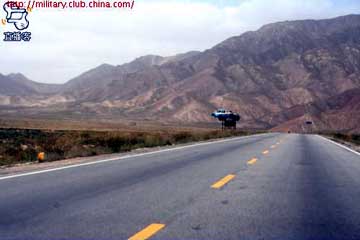

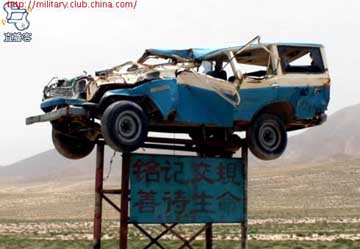
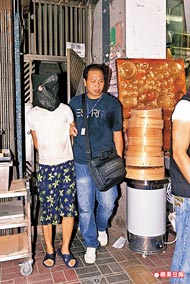
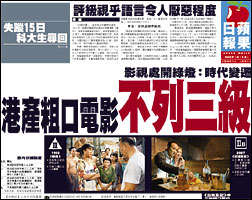
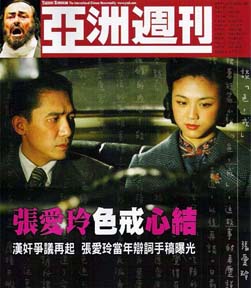
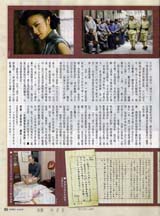
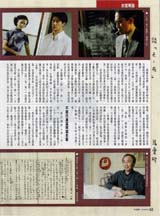
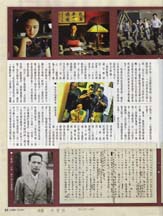
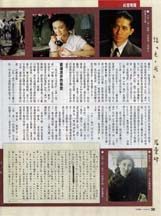
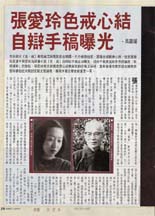
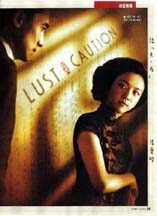
谷德昭) wrote in Apple Daily:
Columnist Koo Tak Ming ((
此 片 產 生 了 一 個 可 能 比 電 影 本 身 更 大 的 課 題 , 電 影 的 對 白 包 含 了 一 些 廣 東 粗 口 , 但 革 命 性 地 被 評 為 Ⅱ B 級 影 片 , 一 直 以 來 , 只 要 電 影 中 出 現 五 個 廣 東 粗 口 字 , 即 是 諧 音 「 秒 」 、 「 咪 」 、 「
」 、 「 物 」 、 「 吻 」 的 五 個 門 字 部 首 字 , 一 律 會 被 評 為 Ⅲ 級 電 影。
(in translation) This movie created a bigger discussion theme than the movie itself, because the dialogue included a number of Cantonese obscene terms. However, the movie has been classified as Class II-B. Previously, it was assumed that as long as a movie contained any of five Cantonese-language terms (which are the homonyms of the sounds: "Miu," "Mai," "Mau," "Mud", and "Mun"), it will automatically be classified as a Class III movie.
Note: The columnist had to use the homonyms because the newspaper would be fined by the Television and Entertainment Authority/Obscene Articles Tribune almost automatically for using the original words. By using the homonyms, the spirit of the law is satisfied while everybody knows exactly what the words are. Such is the vaunted rule of law in Hong Kong.
Blogger Leona Wong attended a Baptist University movie on forum at which Ping Ho-cheung spoke. Here is the director's thoughts on obscene language and nudity.
I never understood why movies containing obscene language, such as Jacob Leung's <Cage People>, could be classified by the Television and Entertainment Licensing Authority as Class III, whereas movies with topless nudity were classified as Class IIB. Please do not say that this is for the protection of children. I think that the likelihood of children encountering people using obscene language in the street is far greater than them encountering naked women.
On the ninth issue of the overseas edition of <Zhiyin>, there was a report written by a person named "Zhang Yunfei" titled <Joint Complaint Signed By Eleven Mistresses Brought Down Corrupt Former Shaanxi Provincial Communist Party Political Consultative Conference Vice-Chairman Pang Jiayu>. A number of websites re-published this essay.
An inquiry to the Pang Jiayu case team of the Central Disciplinary Commission revealed that Pang Jiayu was accused of dereliction of duty for the burst pipes from the Fengjiashan reservoir, the huge economic losses from the illegally issued state bonds from the Baoji financial company as well as his accepting of bribes and gifts. Complaints from citizens led to the formation of a special Central Disciplinary Commission to investigate his case. Pang Jiayu is a suspected criminal who has referred to the law enforcement authorities. However, the eleven mistresses mentioned in the report to have filed a jointly signed petition is purely fictional.
"Lust, Caution", the Venice Film Festival's Golden Lion winner for best picture, will be cut by 30 minutes for audiences on the Chinese mainland, renewing debate about the adoption of film rating system.
With a original running time of two hours and 36 minutes, the film was to have a large number of sex scenes excised to become "relatively clean", said the film's director Ang Lee.
Lee's film, called "Se, Jie" in Chinese, set in Japanese-occupied Shanghai in 1940s, contains bold sex scenes between a young woman spy played by novice actress Tang Wei and powerful political figure played by Tony Leung, and has been given the restrictive NC-17 label in the United States, banning viewers under 17.
... Online discussion about the film has been unexpectedly hot. Thenews.nen.com.cn website commented that mainland audiences could simply watch the full version on pirated discs, and it doubted whether the cinema version could attract audiences without the sex scenes. The beelink.com website said the film should be treated as "art" and not as "pornography".
In Taiwan, <Lust, Caution> will be shown in full as promised by the Government Information Minister Shieh Jhy-Wey (see TVBS). In Hong Kong, <Lust, Caution> will be shown in full, with the Class III rating that limits the audience to those 18 years or older. But already, the spoofs are coming out from Hong Kong. Apple Daily has a poster of "Ms. Broomhead" Regina Ip, a likely candidate in the Hong Kong Island Legislative Council by-election.
About a month ago, a netizen with nickname Xiao Bie learned that the father of another netizen in Guangzhou had terminal lunng cancer. So Xiao Bei and a few other netizens went over to pay a personal visit. At 2pm on July 27, the funeral/cremation of the late father took place. But Xiao Bie was unable to attend. Instead he kept sending SMS messages to ask the netizen how things were going.
When the netizen returned home, he found the door of his home wide open, and there were two notebook computers, two mobile telephones and 5,500 yuan in cash missing. The netizen suspected that Xiao Bie might have burglarized the home while the family was attending the funeral service.
On the next day, the story broke open on QQ. One netizen wrote: "We cannot use words to describe our anger. We swear that we will track this guy down!" So an Internet arrest warrant was issued with everybody contributing their efforts. First, they found a photograph of Xiao Bie, and they were surprised to find that he was a famous Internet fraudster with real name He Tianbao. Then the netizens found the real address of He Tianbao and called the police, who found the two missing notebook computers in that home. However, He Tianbao was not home. It turned out that He used his loot to take his girlfriend away.
But the Internet warrant was still in effect. On August 31, a netizen saw He Tianbao on Haizhu Road and many netizens went out there to wait at 11pm. At 2am on September 1, they saw He Tianbao and called the police. He Tianbao was then taken into custody.
According to investigation, He Tianbao had a simple way to defraud people. First, he posted to sell products at good prices at the BBS's. Next, he used many means including sock puppet accounts to get netizens to lower their wariness. Finally, he got the buyer to pay up front and then he promptly disappeared. Most of the time, the amounts are just several hundred yuan so that the victims usually did not bother to call the police.
[in translation]
The situation in the by-election of the Hong Kong Island Legco seat has taken an unexpected turn today with information is that former Chief Secretary Sir David Robert Ford, Next Media Group chairman Jimmy Lai, Catholic Cardinal Joseph Zen, former Democratic Party chairman and other evil dregs of British colonialism are manipulating the strings behind the curtain in order to make former Chief Secretary Anson Chan enter the race in spite of her reluctance. This is happening because Anson Chan is the last chess piece left for the British in Hong Kong.
On Friday, August 31, which is two days before Martin Lee suddenly declared open support for Mrs. Chan while putting down Cyd Ho, Ford showed up in Hong Kong and stayed at his regular haunt of the Shangri La Hotel in Admiralty. The news was that Ford came here with two big assignments. The first was to persuade the hesitant Mrs. Chan enter the election. The second is to fix the internal squabbling among the pan-democrats and force the potential candidates Cyd Ho and the Democratic Party's Kam Nai-wai to abandon their campaign efforst. The facts show that his script is being realized scene by scene.
Whenever there is something big on the political scene in Hong Kong (including the July 1st march in 2003, the Legislative Council showdown in 2005, the 2007/2008 political reform proposal and Mrs. Chan high-profile announcement to participate in last year's July 1st march), Mrs. Chan's former British boss Ford would make a special trip to Hong Kong. Ford came from the British intellgence agency (MI6), and he was responsible for promoting Mrs. Chan and positioning her as the first Chinese Chief Secretary. After the return of Hong Kong to China, he continued to maintain close contact with Mrs. Chan and he is regarded as the messenger between Mrs Chan and the British government as well as her advisor behind the scenes.
Jimmy Lai and Joseph Zen have intimate ties to the United States and they are said to play active roles in this affair. Democratic Party chairman Albert Ho and Kam Nai-wai told reporters yesterday that they met with Mrs. Chan. A reporter asked them straight out whether Jimmy Lai and Joseph Zen were present at the meeting, but Albert Ho declined to answer. This only makes people suspect that something more went on in the meeting.
The link is transient, so here is the original text:
立 法 會 港 島 區 補 選 形 勢 峰 迴 路 轉 , 消 息 指 是 前 布 政 司 霍 德 、 壹 傳 媒 集 團 主 席 黎 智 英 、 天 主
港 區 主
陳 日 君 樞 機 , 以 及 民 主 黨 前 主 席 李 柱 銘 等 「 港 英 餘 孽 」 在 幕 後 操 盤 , 希 望 促 成 前 政 務 司 司 長 陳 方 安 生 「 唔 嫁 又 嫁 」 , 因 為 , 陳 方 安 生 是 英 國 人 在 港 的 最 後 一 隻 棋 子 。
上 月 三 十 一 日 星 期 五 , 即 李 柱 銘 突 然 公 開 力 撐 陳 太 及 暗 踩 公 民 起 動 何 秀 蘭 前 兩 日 , 霍 德 再 次 現 身 香 港 , 下 榻 他 慣 常 入 住 的 金 鐘 香 格 里 拉 酒 店 。 消 息 指 , 霍 德 今 次 現 身 香 港 有 兩 大 任 務 , 其 一 是 意 圖 「 一 錘 定 音 」 , 希 望 促 成 之 前 猶 豫 不 決 的 陳 太 參 選 ; 其 二 是 擺 平 泛 民 主 派 的 內 部 鬥 爭 , 迫 使 有 意 參 選 的 何 秀 蘭 及 民 主 黨 甘 乃 威 逐 一 棄 選 。 事 實 證 明 , 他 一 手 策 劃 的 劇 本 正 一 幕 一 幕 上 演 。
每 逢 香 港 政 壇 有 大 事 發 生 , 包 括 ○ 三 年 七 ‧ 一 遊 行 、 ○ 五 年 立 法 會 表 決 ○ 七 ○ 八 年 政 改 方 案 , 以 及 去 年 陳 太 高 調 宣 布 首 次 參 加 七 ‧ 一 遊 行 前 夕 , 陳 太 的 英 籍 舊 上 司 霍 德 都 專 程 來 港 。 霍 德 出 身 英 國 情 報 機 構 「 軍 情 六 處 」 ( M I 6 ) , 有 份 提 攜 陳 太 上 位 及 接 替 自 己 出 任 首 位 華 人 布 政 司 , 回 歸 後 亦 一 直 與 陳 太 保 持 緊 密 聯 繫 , 被 視 為 陳 太 與 英 國 政 府 的 傳 話 人 兼 幕 後 軍 師 。
與 美 國 關 係 密 切 的 黎 智 英 及 陳 日 君 , 亦 被 指 在 今 次 事 件 扮 演 積 極 角 色 。 民 主 黨 主 席 何 俊 仁 及 甘 乃 威 昨 日 向 記 者 交 代 與 陳 太 的 會 面 時 , 記 者 問 及 會 面 是 否 有 其 他 人 在 場 , 何 俊 仁 神 神 秘 秘 , 竟 答 「 可 能 有 、 可 能 冇 」 , 記 者 再 單 刀 直 入 詢 問 黎 智 英 及 陳 日 君 是 否 在 場 , 何 俊 仁 則 拒 絕 回 答 , 更 加 令 人 覺 得 會 面 別 有 內 情 。
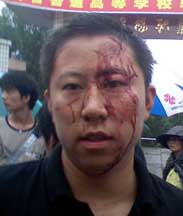
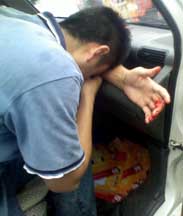
In Kaohsiung, 35-year-old Chinese Commmunist Party Political Consultative Conference member Zhang Weiliang from Baiyun district, Guangdong province filed a police report. According to Zhang, he was travelling in a group tour of 15 people who represent the department of agriculture in Baiyun district. Last night, he was unable to sleep and therefore he went out and found a taxi to take him to somewhere to "for fun and relaxation." He was taken to a hotel, where a man with tatoos on his arm brought a girl in. Zhang was not satisfied with the looks of the girl and wanted someone else. But the man said, "If you don't pay up, you won't be able to leave." Zhang became scared and handed over the 6,000 yuan on him. Then he went to file a police report. The Kaohsiung police arrested the man who allegedly threatened Zhang. The man said that this was just a consumer fee dispute, and the sum of money was only 1,200 yuan. When the police tried to contact Zhang again, he said "I don't want the money" and he only wanted to return to Guangdong as quickly as possible. The Liberty Times reporter attempted to contact Zhang too, but the tour was still on the road.
On September 10, the Guangzhou Baiyun district government spokesperson said that the Baiyun district Department of Forestry director is named Zhang Weiliang. But he is not a member of the Chinese Communist Party Political Consultative Conference. Furthermore, he is more than 50 years old and not the 35-year-old according to the Kaohsiung police. "But the most key point is that there is no study group from Baiyun district traveling to Taiwan recently. Baiyun district Department of Forestry has been in Guangzhou this whole time and did not go to Taiwan. Kaohsiung probably got the wrong information."
Of the three times that I covered the APEC meeting, this Sydney trip was the most unbearable.
In the past, as long as we have an APEC press pass, we could cruise around the press area in the hotels of the state leaders without restriction. When we spot a target person, we would raise our audio recorder and ask questions. We would gather around and watch the "pool" videos. We would watch the meeting between Hu Jintao and Donald Tsang over and over again even though it only lasts a few minutes or even just a few dozen seconds. We tried to figure out the atmosphere and emphasis of the meeting through the opening remarks and the time lengths of the handshakes.
This year, I went with my APEC press pass to the Sofitel Hotel where Chairman Hu Jintao was staying. It turned out that the rows of iron barriers and strong guys were not there just for show. A special purple-colored press pass issued by the Chinese Ministry of Foreign Affairs separated me from the other. I saw my colleagues from other media outlets walk in with their press passes in hand. I argued with the personnel outsite the iron barriers unsuccessfully, and then I began to feel sorry for myself.
Why was I denied entry? I heard that the Ministry of Foreign Affairs treated everything related to the bilateral talks as part of the Australian trip. So even though they were not on their own turf, they had cause not to allow any "non-compliant" newspaper to enter. If they had told me beforehand that "You are not welcome here," I would not have found it so unbearable. To make me wait in vain in the cold drizzle so that I can bear witness to their preferential system was very discouraging.
It is not easy being an Apple Daily reporter. Do not say that we receive higher pay. There has to some compensation for the mental anguish from the discrimination and ostracization that we suffer. And I have to thank the colleagues who do their best to provide me with the information that I missed.
P.S. After the rejection, I walked back through the dark night from the Sofitel Hotel back to Darling Harbour. That half-hour walk felt very long.

Dong Cunrui (1929-1948), a Party member, was made a Hero of the People's Liberation Army in 1963. During a campaign in the civil war between Communist and Nationalist forces (1946-1949), the advance of the PLA was blocked by a last enemy stronghold, in the form of a pill-box built on a bridge. Dong pressed a pack of explosives against the bridge with his hand and blew the pill-box off. He was killed in the explosion.
Fast forward to here and now at People.com.cn:
The revolutionary hero Dong Cunrui's image of holding up the explosives before becoming a martyr has been used by a Guangzhou hospital for gallstone treatment. Instead of holding explosives in this hand, he is holding a stone. The accompanying text was "Are you a 'hero'? You could not endure this, right?" This advertisement appeared in a free publication. When the reporter contacted the hospital, a worker said that the advertisement was comissioned to an advertisement agency. As such, he says that it was "totally unrelated to the hospital." He said that the hospital has received complaints and they were depressed as a result.
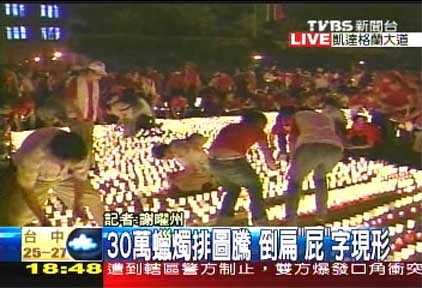
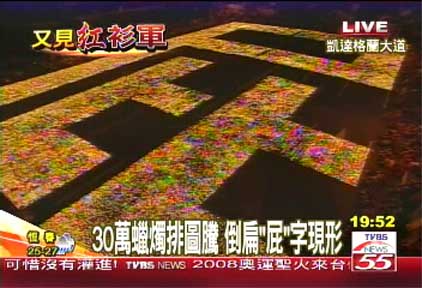
Since September this year, Beijing has instituted the "Capital Internet 110 Virtual Police." These appeared first at the portals such as Sina.com, Sohu.com and others, and will cover all websites based in Beijing by the end of December. According to news reports, the virtual police has jurisdiction mainly over illegal activities on the Internet such as disseminating pornography or selling banned materials. But the fact is that the Internet crimes also covered Internet theft, fraud, gambling, terrorism, money laundering, superstition, rumor mongering, etc.
These were always illegal activities under the law, and they did not become legalized with the emergence of the Internet. It is just that the Internet created for opportunities for people to commit these crimes there. Although the virtual police are well-intended, there seems to be some hidden concerns about them.
First of all, the Internet is the most common mode of communication nationally or even globally. This author is dubious about the rationality and effectiveness of local control of the Internet. Suppose bank account passwords are being stolen and the thief is in Beijing but the victim is outside of Beijing; or suppose the victim is in Beijing but the thief is outside Beijing (or even outside of China). What was the Beijing Internet police going to do? Of course, in principle, the Beijing police can contact the outside public security agencies to work together. But without the coordination of the national government, it would be difficult and inefficient for the Beijing public security bureau to do anything. Furthermore, most of the Internet crimes that occurred at the Beijing-based websites (such as the big portals) have nothing whatsoever to do with Beijing ...
The key here is that the scope of the Internet is far beyond what a local government can control. Only the central government can implement effective controls on the Internet. If the local governments implement their own systems, the standards will not be uniform and this will have the bad effect of breaking down the Internet space.
Even more worrisome is that the definitions of certain Internet crimes are very broad and vague, to the point where ordinary people have no way of telling the boundary between the legal and the illegal. The government will encounter similar problems in making that determination, and this means that law enforcement will seem arbitrary. The two most troublesome types of crime are "Internet superstition" and "Internet rumor mongering." Beijing does not explain just what is superstition. For example, is praising "Lord Guan" on the Internet superstition? The citizens have the basic right to religious belief. Article 36 in the 1982 Constitution states that the citizens have the freedom of religion. In a certain sense, all religions carry some flavor of "superstition" because all religions have a certain supernatural belief that cannot be tested by sensory organs or experiments. If someone says that "Lord Guan" is a god, he may not be able to prove it to us in a way that we can accept. But we cannot prove that he is wrong either, because we have not met any gods ourselves. So this is a matter of personal judgment and we cannot possibly set up an objective standard to define what is "proper"/"normal" belief versus "superstition." But if the government wants to use their own judgment to ban or punish "Internet superstition," then article 23 of the Constitution about the freedom of religion would lose its meaning.
The Beijing regulations define "Internet rumor mongering" as "harmful speech," but there is no explanation of what kind of speech is harmful. Article 35 of the Constitution stipulates that the citizens have the freedom of speech and publishing. Obviously, Internet speech is protected by the Constitution. Of course, freedom of speech is not absolute; if someone spreads falsehoods on the Internet that create terror and chaos, then he cannot invoke freedom of speech to evade legal responsibility. Yet, we know that once upon a time when one and only one person was allowed to have a say, it had even worse social consequences. Therefore, we must be very careful if we are to restrict speech. After all, even the government makes mistakes, especially in not being able to cope with public criticisms fairly. If the government can ban anything because it thinks this was harmful speech, then article 35 of the Constitution about the freedom of speech would lose its meaning too.
Ordinary people may not be the smartest. But if they can have the full information and conduct a full discussion, their collective judgment is likely to be better than the government alone. In the past, we used to say, "The eyes of the masses are as bright as snow." We have to trust that the ordinary citizens will be able to tell the "fragrant flowers" from the "poisonous weed" in an era in which "one hundred flowers bloom" and that their decision will be in the best interest of the majority of the people. Therefore, the government should not restrict such discussions if there is no immediate damage ...
[027] The Peng Yu Case and Public Opinion (09/09/2007) (Southern Metropolis Daily)
Recently, a civil case involving an ordinary Nanjing citizen drew a strong response on the Internet. The facts of the case are still confusing, but the following is known: The old lady Mrs. Xu was waiting for a bus and fell down during the jostle to get on the bus; citizen Peng Yu came off the bus and helped her to get up; Mrs. Xu then sued Peng as the person who pushed her and sued him for the 100,000+ yuan in medical expenses; Peng Yu claimed that he was only a kind-hearted citizen trying to help a fellow citizen in distress; the court determined that Mrs. Xu was injured as a result of a collision with Peng and ordered him to pay 40% of her medical expenses; Peng told the local media that his act of kindheartedness led him to be wrongfully sued. This story of a good-deed-earned-a-bad-end propagated quickly over the Internet ...
This case fell into a Rashomon-like puzzle because there is no way to know the truth. Did Peng Yu collide with Mrs. Xu? People can only say "I believe that ..." but there is no way to convince people on the other side. Yet, the court must come to a decision based upon the evidence that it had on hand and its understanding of human nature. As such, the court cannot possibly please everybody. As a result, the people who believe in Peng Yu thinks that the court was unfair, but their opinions are considered unfounded and rash by people on the other side. Of course, there are also more and more people who think that the truth in this case is unknowable and therefore refuse to rush to judgment.
... The most popular Internet posts on this case are almost one-sidedly for Peng Yu's innocence. Some of them deduced that there must be some 'chicanery' behind the court judgment, such as indicated by the fact that Mrs. Xu's son is a policeman, etc. The case was also elevated as evidence that the law and morality have both gone missing in China today ... this outburst of anger reflects the social emotions that we are familiar with: the dissatisfaction with the law enforcement agencies, the moral sense of people and the rules of society ... such anger obviously has some basis. To a certain degree, the anger also meant that the people still hold a slight glimmer of hope: they still expect justice in the world, and this expectation is making people speak up and take action in order to change their world.
This is not the first time that we have seen this yearning for the re-establishment of morality in civic society. On the Internet, we have seen people organize on behalf of impoverished students, ailing mothers, children forced to drop out of school, slave laborers in illegal brick kilns, stopping the torturing of cats, the case of Huang Jing, the case of Gao Yingying and so on. They organized to support, speak and act in the name of truth, conscience and justice. But their actions are transient and their organizations are loose. There is still no roadmap for how the moral forces of the civic sector will progress. In practice, these moral forces out the system are destined to be short-lived, disorganized, disorderly, stunted and ineffective. Furthermore, they contain a certain unstated risk because they lack self-reflection and rationality, which means that they can exhibit violent tendencies.
In the case of Peng Yu, we see such an example: the facts of the case are difficult to ascertain, but the commentators are convinced. Of course, people are condemning certain macro-level issues that clearly and truly exists: the unfairness of the judiciary, moral degeneration, the evils that are leaching onto the system ... but with respect to the Peng Yu case itself when the facts are uncertain (and may never be known), is it right to choose to condemn social morality? This one-sided public opinion in the name of justice has at least one bad consequence: the originally ambiguous circumstances of the case have been turned by various levels of people who had "justice" in mind into something very simple about a kindhearted person being maligned instead. But what if Peng Yu was really guilty? That possibility cannot be excluded. People get together to fight against moral degeneration, but they end up with covering up the truth in the name of justice and they invoke the name of morality in order to damage morality. This tragedy is occurring only because people do not trust the system right now.
Relevant Link: A 45,000-yuan helping hand: common sense, decency, and crowded public transportation Joel Martinsen, Danwei
Hong Kong Island Legislative Councilor Ma Lik passed away last month and his Legco seat is up for by-election. Since Ma Lik's death on August 8, the pan-democratic camp has been fighting over this seat. They have thought up everything possible with only the word "Win" in mind. As long as the pan-democratic representative can beat Regina Ip and enter the Legco, all will be fine hereafter.
That was how this struggle unfolded over the past month. But the pan-democrats do not seem to have considered whatsoever just what kind of Legco member the citizens wanted. From the viewpoint of the voters, there will be winners and losers in all elections. They are most concerned about whether the winners will be completely dedicated to serving society and the people.
The citizens have a very simple role for the Legco members. When a Legco member is selected, he should represent the citizens. Perhaps this Legco member belongs a political party, but public interests should supersede party interests . The elected Legco member has the duty to monitor the government, to fight for maximum benefits for the citizens, to protect the assets of the taxpayers and to satisfy the needs of the people. It is as simple as that.
At present, the entire atmosphere of this election is that of a political wrestling match. The pan-democrats have targeted Regina Ip because she is their "mortal enemy," but they are also fighting among themselves publicly and privately over the issue of their representative(s). After the news of Ma Lik's death came, Cyd Ho was the first to express her intention to participate in the by-election, and she received the support of the senior elders of the Democratic Party. But her statement did not imply that she got the nod, because the second-tier Democratic Party member Kam Nai-wai also openly announced his intention to run. The newly founded League of Social Democrats also expressed interest.
Who shall compete against Regina Ip? Will they gang up on her, or go one-on-one with one representative? After many discussions, the decision was that it will be one-on-one combat. But who was going to voluntarily give up their chance to face Regina Ip? So a primary election system was devised, so that the ultimate pan-democratic representative has to pass three tests in order to become the official representative. This agreement was going to lead to a face-off among the candidates. But suddenly, the Democratic Party senior elders changed their minds and said that they wanted to persuade former Chief Secretary Anson Chan to enter the race. Anson Chan said that she has no intention to enter the race, but she will think about it. Meanwhile, the first person to declare -- Cyd Ho -- was also the first person to announce her withdrawal.
It is still unknown whether the "primary election system" of the pan-democrats would work. If Anson Chan really wants to run, she ought be able to go directly into the finals based upon her quality and class. But would the other candidates accept that? If Anson Chan stays on the sideline and Cyd Ho has already left the field, then haven't the pan-democrats weakened themselves?
The voters are watching how things develop. Over the past month, things were happening on a daily basis. The voters are stunned that the entire Hong Kong society only knows politics and nothing else. Everybody's energies are placed on a Legco seat with only an eight-month term. This seat did not belong to the pan-democratic camp before, but they are now saying that if they lose this seat, the Legislative Council will have fallen into enemy hands and there would be no hope for double universal suffrage in 2012.
Our position in this column has always been that we do not want to see Hong Kong become overly politicized. When voters pick sides and events are classified by those sides, this will only destroy harmony in Hong Kong . If the pan-democrats recognized what the citizens are thinking about and campaign for this election from the public angle instead, it should be so easy to defeat Regina Ip.
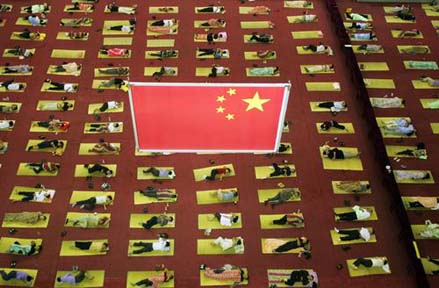
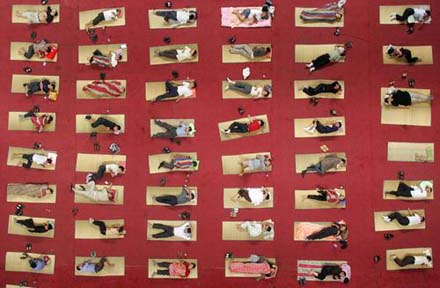
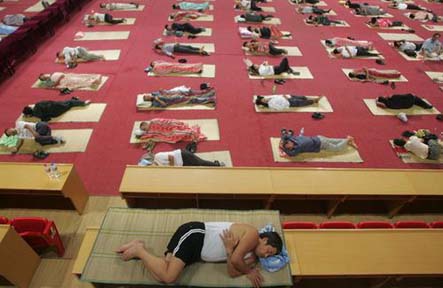
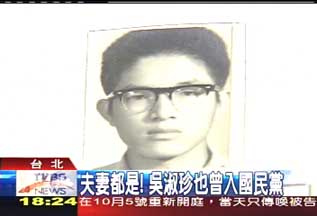
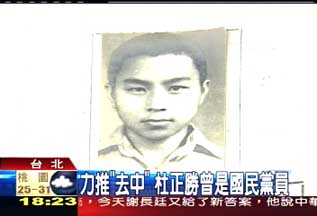
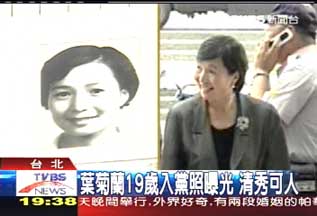
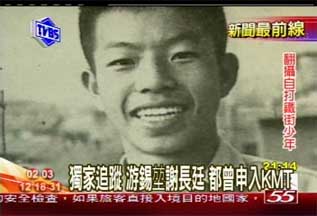
Row 1: President Chen Shui-bian and First Lady Wu Shu-chen
Row 2: Minister of Education Tu Cheng-Sheng and former Justice Minister Shih Mao-lin
Row 3: Presidential Office's secretary-general Yeh Chu-lan and Democratic Progressive Party whip Ker Chien-ming
Row 4: Presidential candidate Frank Hsieh and Democratic Progressive Party chairman Yu Shyi-kun
Every one of them was a member of the KMT during that era. That is not the point. The point is that whether you are behaving the way that you are supposed to here and now. If not, then your former KMT party membership becomes a huge issue; if yes, who cares?
The government had approved the early retirement of scandal-plagued RTHK chief Chu Pui-hing, and would consider both people from within and outside the public broadcasters as candidates to fill in his post, a spokesman said on Friday. Mr Chu, the Director of Broadcasting, sought an earlier retirement in July after being photographed hiding behind a woman reported to be a karaoke hostess. The photo was widely carried in Hong Kongs Chinese-language newspapers. Their reports said Mr Chu had left an exclusive karaoke bar in Causeway Bay with the woman who was a hostess at the bar and had previously worked as an exotic dancer.
What she got (The Sun) "When My Father Learned That I Did Lap Dancing, He Slapped Me In The Face!"
At age 14, Coco left her Sichuan homedown. She has worked as a salesperons, a street vendor, a service worker and eventually she became a dancer. Coco has never told her family about these experiences.
"A couple days after I got home, reporters began to show up and my past history as a lap dancer was exposed. When my father learned that I was a lap dancer, he thought that it was the same as being prostitute. He thought that it was a huge loss of face and he was very angry. He swung a slap at me. After that, even more reporters showed up. I had to leave home and move into a hotel. I have lost eight kilograms since the incident. There is a great deal of pressure. I put the pressure on myself."
Q4. What should the process be for reaching universal suffrage in the direct election of the Chief Executive?
42%: 2012, establish a nominating committee immediately to reach universal suffrage
27%: 2017, after transition phases
23%: later than 2017, after transitional phases
8%: No opinion
Q5. Concerning universal suffrage in the direct election of the Chief Executive, do you believe that it is like that two-thirds of the Legislative Councilors will vote for the proposal?
29%: Yes
51%: No
20%: No opinion
Q6. If universal suffrage in the direct election of the Chief Executive is not possible in 2012, will you accept it in 2017 instead?
53%: Yes
32%: No
15%: No opinion
Q7. What should the process be for reaching universal suffrage in the direction election of the Legislative Council?
39%: 2012, in one step
26%: 2016, in phases
28%: after 2016, in phases
Q8. Concerning universal suffrage in the direct election of the Legislative Council in 2012, do you believe that the two-thirds of the Legislative Councilors will vote for the proposal?
30%: Yes
50%: No
20%: No opinion
Q9. If universal suffrage in the direct election of the Legislative Council is not possible in 2012, will you accept it in 2016 instead?
52%: Yes
31%: No
17%: No opinion
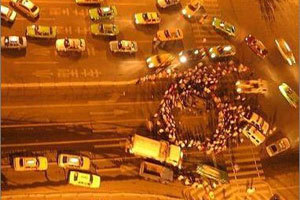
On August 30, a taxi driver piced up a female passenger who appeared to be following the Lexus that her husband was driving. At the intersection of Furong Road and Songguiyuan Road, there was a red traffic stop light. The Lexus and the taxi drivers were next to each other. Suddenly, the Lexus driver jumped out of his car, went up to the taxi, opened the passenger door and slapped his wife in the face. Then he jumped up on the engine hood of the taxi and broke the front window by kicking it with his foot. Other taxis then converged to the scene and surrounded the Lexus. The Lexus driver talked some trash to the taxi drivers, who were infuriated and proceeded to pummel the Lexus driver. The police raced to the scene and took the Lexus driver into the police vehicle. From the safety of the police vehicle, the Lexus driver shouted that the taxi drivers were just "a bunch of country bumpkins." That caused the outraged taxi drivers to vandalize and overturn the Lexus. It took the police more than two hours to clear the scene.Internet opinion is actually divided. There are those who thought that the Lexus driver was an arrogant prick who thought he could vandalize the taxi cab without consequences and then he did not know enough to stop but worse things repeatedly instead. There are others who thought that the taxi drivers were acting like gangsters who administer their own violent street rules.

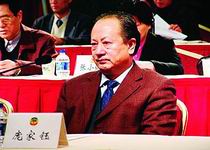
In the case of the prankster who posted that a Japanese ninja defeated the Shaolin temple monks (see Comment 200708#089), the legal advisor for the temple issued a statement that condemned the "extremely irresponsible act not just to the Shaolin Temple and its monks, but to the Chinese martials arts community and the entire Chinese people."
The post was aimed at the Shaolin temple, and I can see that it damaged the temple and its monks. But the condemnation also involved the 'entire Chinese people.' How did that happen? Is the Shaolin temple being presumptuous? Shaolin martial arts may be known all over the world and people think that it represents Chinese martial arts. That would indeed be an honor to the temple. But the temple must not think that it is the entire Chinese people, and it must not think that when someone comes after them, that someone is also coming after the entire Chinese people. The Chinese people consists of many ethnic groups and it is combined concept that has no single specific realization. Nobody can expand themselves into the entire Chiense people.We want the Shaolin temple to be strong, but we don't want to see it become presumptuous. When the temple is the best in the world, it is strong. But if the temple puts on a cloak of the "entire Chinese people," then it is presumptuous. Being presumptuous is not being strong, just as being strong does not need being presumptuous. Being presumptuous is the opposite of being strong. There is no reason for the Shaolin temple to demand this netizen to apologize to the entire Chinese people. Even if this person offended the Shaolin temple, he has not offended the entire Chinese people yet. In the end, this so-called offense was just a prank. If the Shaolin temple were magnanimous, it would just laugh it off because silence is golden. Yet, the Shaolin temple was physically strong but mentally weak and it made a solemn announcement against an Internet post and demanded an apology.
How would the Shaolin temple litigate if the apology is not forthcoming? Under what basis? The Shaolin temple, or the entire Chinese people? The former is farce, and the latter is unwinnable.
The other question is just why Shaolin temple tried to elevate this incident into an offense against the entire Chinese people. Back in the "Anti-Rightist" campaign, two colleagues went shopping for cloth. There were two kinds of cloth for sale. So one person chose one kind and then said that the other kind was not good. This person was then denounced as a 'rightist' because both kinds of cloth were made under socialism and therefore he was denouncing socialism. This type of thinking is known as 上纲上线 (bringing up the principles and lines). The principles and lines refer to class differences, class struggles, dictatorship of the proletariat, victory in the struggle between socialism and capitalism and other big issues. Anything trivial such as leaving part of a steam bun uneaten, being late a few minutes, wearing fashionable clothing, reading books about western philosophy, dissastisfation with a party cadre, the goals of the economic plan, attitudes towards the Party and the Government, opinions about the designated successors to the leaders and so on are always evaluated to the level of the principles and lines. If you say that this piece of cloth is not good, you are attacking socialism; if you make a prank on the Shaolin temple, you are insulting the entire Chinese people. The logic is identical.
Back then, many people paid heavy prices because of the principles and lines. But the notion has not stepped off the stage of history when that era passed away, because it seems to continue to exist in the thinking and language habits of the people. It seems that the Shaolin monks also know about invoking the principles and lines as well.


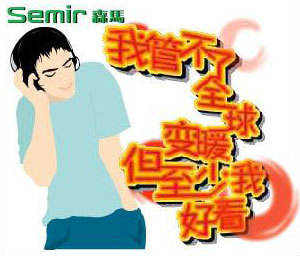
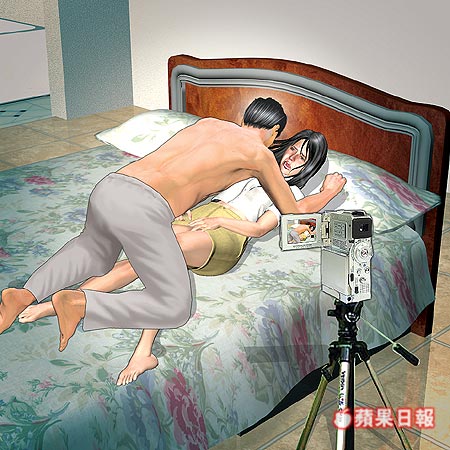
(LSZ at Ming Pao)
The sudden withdrawal of Cyd Ho Sau-lan from the Hong Kong Island Legco by-election surprised many pan-democrats. Since Cy Ho has been vague about the reasons, speculations abound among people. Yesterday, the news came out that Cyd Ho withdrew because she had lied about her academic credentials when she was a Legco member previously. But Cyd Ho explained that she had attended Waterloo University in Canada but did not satisfy the thesis requirement for the degree. In 1998, she was interviewed by Ming Pao and voluntarily revealed this fact. This is now being resurrected as a result of the Legco by-election.
When Cyd Ho announced her decision to withdraw, the initial reaction was naturally that Martin Lee forced her to quit in order for Anson Chan to run. But some pan-democrats familiar with Martin Lee's thinking said that this was unfair. First of all, Martin Lee would never do that. Secondly, the remaining term for this Legco position is less than one year and therefore far less important than people are making out it to be. So there was no need to use such tactics. Besides, the chances of Anson Chan entering are still very low.
Meanwhile, members of Cyd Ho's camp said that they recommended last weekend that she should withdraw due to the criticisms launched against her but the decision was delayed until the day before yesterday. There are three reasons for her withdrawal. First, the primary election mechanism that the pan-democrats agreed upon was more unfavorable to her. For example, the weight of the public opinion poll went from 60% to 50%. Secondly, the understanding of the pan-democrats was to come up with a formidable candidate, but those who intend to run do not have the stature to unify the pan-democrats. With the call by many pan-democratic bosses for Anson Chan to run, Cyd Ho lost interest. Thirdly, they found out that some people were digging up dirt on Cyd Ho such as her attendance record at the District Council meetings. Surprisingly, such people included pan-democrats. In the end, she better off not running this time.
Reason 1. Academic credentials (same story as in Ming Pao above). This was old news and should not have been sufficient to force her to withdraw.
Reason 2. According to some pan-democrats, Cyd Ho withdrew because the system of primary election was unfavorable to her. She could handle the public opinion poll, but the second stage consists of 10 pan-democratic organizations each sending 30 representatives to attend the public forum with the candidates. Cyd Ho had 'teethmarks' (i.e. unhappy dealings) with almost all of these organizations. If she were to show up, she would be the target of everybody and would probably get the lowest number of votes. Therefore, she wanted to use Anson Chan as an excuse to back out and save her from the embarrassment.
Reason 3. The various pan-democratic bosses want to force Anson Chan to run, but she is declining because there are pan-democratic candidates alerady. Among the three people who have already indicated their interests in running, Kam Nai-wai and Lo Wing-Lok should be easy to persuade to withdraw. Cyd Ho is the one person who really wanted to run. If she withdraws, the pan-democrats can force Anson Chan to enter. But this scenario is stretching it too far. Even if Cyd Ho withdraws, that does not mean that Anson Chan would run. Worse yet, if Cyd Ho withdraws and Anson Chan does not run, then which pan-democrat can challenge Regina Ip? Do they have to bring out Szeto Wah out of retirement?
Civic Party lawmaker Ronny Tong Ka-wah yesterday blamed "political heavyweights" for the surprise withdrawal of Cyd Ho Sau-lan as a candidate for December's Hong Kong Island by-election. While Tong did not name names, he was apparently alluding to a statement by veteran democrat Martin Lee Chu-ming who had suggested former chief secretary Anson Chan Fang On-sang would not only be the ideal candidate but would also be exempt from the so-called mechanism to select one candidate."I feel sorry for the voters of Hong Kong Island constituency as they will have fewer people from which to choose," Tong said. "But this was caused by some people who ignored the selection mechanism and used tactics to frighten Cyd Ho away." "I heard what Cyd said in the RTHK program. I could feel the pressure she was under as an individual running an uphill battle without a political party to support her," he said. "How can you discourage someone who is willing to run and then name someone who's not interested in running and turn the whole situation upside down?"
(SCMP)
Cyd Ho Sau-lan, who on Monday pulled out of the Legislative Council by-election on Hong Kong Island, last night called for an "inclusive culture" among political parties. The democrat and former lawmaker said she could not bring "200 per cent unity" to the pan-democratic camp. "As an independent, it is a difficult job to unite different political parties. This is a political reality," she said. "I hope there will be a more inclusive culture among political parties, where people can overlook some party constraints and work closer together for bigger ideals." Insiders close to Ms Ho described her decision as "the climax of long-simmering frustrations". They said she had long been plagued by "backstabbing" from rivals among the pan-democrats, despite initial support shown to her by some leading pan-democrat figures.Pan-democratic groups have agreed on how to field a single candidate with the highest chance of winning the Legislative Council by-election to be held in December. At a meeting yesterday, they agreed on a points system to pick the candidate with the highest score. The method is divided into three parts. Fifty percent will be based on the results of a public opinion poll to be conducted by an academic institute, and 35 percent will be based on the result of voting by 30 representatives from 10 pan-democratic organizations which have agreed to co-ordinate in the district council elections. The first two parts will be conducted after open debates among contenders, due to be held later this month. The remaining 15 percent will be based on the result of voting by 28 pan-democratic district councillors in the Hong Kong Island constituency.(Those Were The Days blog)
Actually, I learned on Sunday evening from a colleague and a pan-democrat person that Cyd Ho would withdraw. The pan-democrat person thinks that Cyd Ho was keenly aware that the pan-democrats' selection mechanism would get her into big trouble. Among the three parts, the organizations which came up with the agreement will each send 30 representatives to a forum in which they will vote. According to the pan-democrats, virtually all of the organizations except for Cyd Ho's own Civic Act-up are dissatisfied with her. Therefore, Cyd Ho should be start enough if none of the organizations would cas a single vote for her, her political career is essentially terminated! So why not use the excuse that the pan-democrat bosses want Anson Chan to run in order to back out now and save herself for the 2008 Legislative Council election when the selection mechanism is no longer there?
Nobody has asked the obvious question. First, let us stipulate that the public opinion polls currently show that Cyd Ho is the most popular candidate among the pan-democrats who have indicated interest (Raymond Wong, Lo Wing-lok and Kam Nai-wai). See, for example, the Ming Pao poll. Next, let us say that the forum among the 300 representatives from the 10 pan-democratic organizations ends up with nobody else except Civic Action voting for Cyd Ho. Why is this scenario regarded as normal? Why is it normal for the pan-democratic camp to vote in a way that differs from public opinion? What do they know that the public does not? What is the meaning of democracy if the public will is to be ignored?

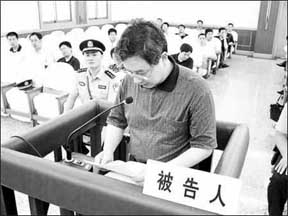
There are many reasons why I ended on the path of corruption, but the main reason was subjective in nature.
I am the son of farmers. The Party sent me to university for education and then they sent me to the county for training. Once I got in the leadership position, the promotions, posts and accomplishments caused me to feel arrogant. I thought my accomplishments were due to my ability. When I do someone a favor, I think that they owe me. With such twisted thinking, I began with taking presents during festivals and holidays and I took monetary gifts until things got totally out of hand.
Since I was in a critical job post, I held the power in my hands and I could get things done on my say-so. Many people come to me for help, and plenty of people clamber and pursue me for favors. Slowly, I forgot all about party discipline and state laws. Under the influence of friends, I became bolder and bolder. By that time, I had no sense of party discipline left. I only wanted to get something for myself, and I was never inhibited by party discipline or state laws. The law is merciless and fair. I am very sorry now, but it is too late.
Yes, but so what? The reporter from <Procuratorial Daily News> discovered that Zhang Chaocang's confession had a great deal of similarity with the letter of confession published on May 29, 2007 in <Procuratorial Daily News> by Longquan Station, Chengdu, Sichuan former party secretary Zhu Fuzhong. The similarities were beyond chance alone. In other words, this was an act of plagiarism.
It was believed that the detention center has a subscription to <Procuratorial Daily News> and Zhang Chaocang must have seen Zhu's letter. When Zhang's turn came to stand trial, he appropriated certain sections of Zhu's letter. It may be that Zhang felt a resonance with Zhu's experience and really felt that same way. Still, if Zhang Chaocang was truly contrite, he should not have plagiarized someone else's letter of confession. Worst yet, Zhang has been caught for doing it.
Some commentators have noted that these confessions were empty talk filled with clichιs. This is certain true for some of them. If these corrupt officials are always so full of love for the Party and the masses, how could they have gone into corruption in the first place?
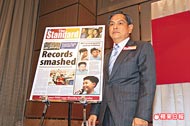
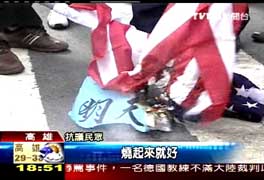
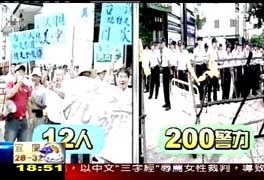
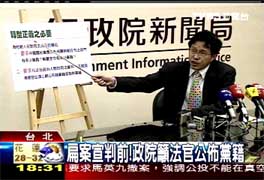
Recently, a video has been very popular at the various big Internet forums: due to a slight, more than 20 Mazda 6 sedans surrounded a Hummer on the Ningbo-Lianyungang Expressway and forced it to go at the slow speed of 30 kph for ten minutes until the Hummer sounded its police siren. This video caused a storm as condemnations came in. Some netizens initiated an Internet hunt and published the names and mobile phone numbers of the Mazda 6 owners.
After watching this video, I had to laugh: What is the big deal? At most, this is a spat on the expressway among car downers. If traffic rules were broken, the case should be referred to the traffic department and that was it. Why are there rivers of Internet saliva? Why did this get raised to the level of Internet violence where confidential information was published for no reason?
According to traditional standards, the incident and the reporting were both not very meaningful. It is a waste of time. But this did not affect its ability to become the center of a discussion that you cannot help but pay attention to.
In a diversified society, meaningless incidents can have unimaginable impact through the Internet -- the participants wil use a meaningless incident to express their own sentiments without paying too much attention to the incident itself.
In the case of the "Mazda 6's PK Hummer" incident, it is no longer important whether the drivers were right or wrong. The important fact is that the Mazda 6's and the Hummer gave people a perfect reason to vent: Look, these rich people flaunt their wealth on the expressway, they abuse their wealth, they deserve to be cursed, they deserve to die! Here, people are no longer cursing the specific individuals in this case, but they are cursing the abstract class of "rich people."
The grand background of this unbalanced mindset is the rich-poor gap in society. Those people who feel that their interests had been damaged in the past are looking for an opportunity to vent. Therefore, a minor matter such as the Mazda's laying siege to a Hummer became the excuse for a war of words.
It is interesting that if you observe carefully, then the people who are cursing most vehemently are not the socially vulnerable people. Instead, white collar workers and private company owners are just as angry. A certain private company owners wrote: "I don't want see anyone with more money that I have. If I don't like it, I will start cursing. I will curse out everyone that I don't like ..."
"Cursing out everyone" reflets the anxiety and uncertainty during the transitional era. The "Mazda 6's PK Hummer" affair is a live example that directly revealed the irrational mindset from the social problems. These types of emotions are spreading and we should take about how to treat them. "Cursing out everyone" does not solve any problems and is bad for the construction of a harmonious society.
Q1. Were you the person in the photographs on the Internet?
A. No. The face is mine, but the body is not mine. I have asked friends in Japan to look up the real person on the Japanese Internet or photo alumbs. I don't feel that they were very good with their Photoshop work.Q2. Did you participate in any part of this affair?
A. No. Someone might have mentioned that they would make me famous. But I never imagined that I could be famous through these perverted photographs.Q3; Someone said that you are putting an act with Electrolux?
A: Yes, this affair has made Electrolux famous. But is this a positive influence for the brand value?Q4. What are you doing right now? Will you accept interviews?
A: I am overseas where I will begin my studies immediately. Since I am not the principal in the nude photographs, I have nothing to rebuke. You can use photoshop to put any movie star into any photograph. Of course, I am not a movie star, so they took my photographs to do this. Nobody would leave it if it were a movie star.Q5. Can you describe your place of origin and education?
A: All the Internet stuff are lies. They are all wrong. My confidential stuff is still secure.Q6. Has any brand asked you to become the spokesperson? How much do you charge?
A: I have no intention of being a spokesperson for any brand or company, including Electrolux.Q7. Some reporters say that you leaked the photographs yourself?
A: Throughout the process, not a single reporter interviewed me. In China, the reporters only know how to make up fake news and then they spin the fake news around and around.Q8. Why did you suddenly start a blog at icxo.com?
A: I did it in order to be able to counterattack. I am a manager, and so I set up a blog at icxo.com. This is my one (and only) personal webpage.Q9. Since the character in the nude photographs is not you, will you pursue the person(s) responsible?
A: I will. One part of the action plan is shown in the fact that it is very hard to search for the photographs in China now.In the comments to this blog, some netizens do not believe her assertion about the Photoshop job. Within the series to totally nude photograhs are some in which Shi Jing stood in front of a mirror, so that she appears twice. It would be immensely difficult for a Photoshop master to come up with two headshots that match so perfectly.
(the red bars were imposed for the sake of 'decency' -- whatever that means)
Yesterday, President Chen Shui-bian was interviewed on a television program and said that "it was bullshit" to say that the judiciary is not interfering with the upcoming presidential election. He also thought that more than 70% or 80% of the judges are 'blue.' In the past, President Chen Shui-bian had said that he would resign if the state secret case should result in a guilty verdict in the first trial. But if the judiciary is not independent and detached, knows only political colors and ignores right and wrong, he "obviously needs to reconsider."
Yesterday, President Chen Shui-bian was interviews by SETV on the program "Talking Show 大話新聞" and he expressed strong doubts about the judiciary in Taiwan. Concerning the presiding judge Tsai Shou-hsun in the state secret fees case and the Ma Ying-jeou special fees case, the program host Cheng Hung-yi asked whether Tsai was tainted by politics. President Chen answered that many people are critical: "I don't know him so I cannot comment. But I have lots of question marks."
The host brought up the claim that 70% or 80% of the judges and prosecutors are 'blue.' Does the President agree? President replied: "I think that the number is even higher." When the judiciary reaches this state and more and more people feel that the judiciary only sees 'color' instead of right or wrong, it is the sorrow for the nation.
The host then asked, "Do you think that the judiciary is interfering with this election?" President Chen said: "It would be bullshit to say that they are not." If a few members of the judiciary can act as referees to decide for the people just who is qualified or unqualified to be elected, then there is not point to even bother with the election. He emphasized that he is not criticizing the judiciary, but the judiciary has to command respect. The people in the judiciary must respect the law instead of raising doubts among people.
You didn't think that he would really keep that promise, did you?
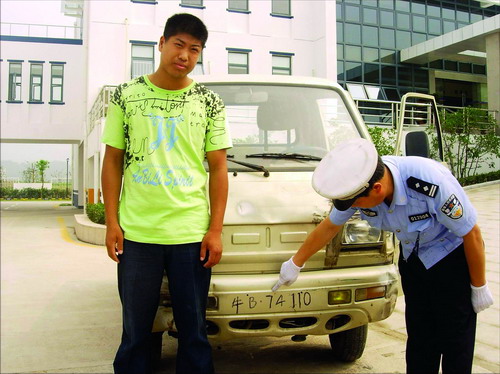
Archives